L’DOR V’DOR
Dr. Robert Kravetz was honored at AZJHS’ annual meeting

SENIORS
Scottsdale senior Joanie Rose wants to ‘build bridges, not walls’

L’DOR V’DOR
Dr. Robert Kravetz was honored at AZJHS’ annual meeting

Scottsdale senior Joanie Rose wants to ‘build bridges, not walls’
Over the last 18 months, Tucson’s Prince Chapel African Methodist Episcopal (AME) Church experienced a series of troubling incidents. First up was a stone through one of the church’s stained glass windows. Then a bible and copy of “Harry Potter” were set ablaze and tossed into the window well leading to the building’s basement. Additionally, the church and its neighbor, the Tucson Jewish Museum & Holocaust Center, had their air conditioning units vandalized and copper wire stolen.
The church’s pastor, Rev. Gerald Richard, reported the crimes. As a former prosecutor, he believes in utilizing the criminal justice system, and while he doesn’t know the motivation behind the broken glass and the arson, “I have to take every precaution for my congregation,” he told Jewish News. Using private funds, the church put wire cages around the air conditioning units and set some basic security measures into place.
“There’s more to do. We live in a time of individuals using weapons to get their point across as we can see with so many mass shootings. We will take steps to prevent that with armed security,” Richard said.
While he had to rely on personal money for the initial work, he has reason to hope the state will fund enhanced security measures for his church and others going forward, thanks to the effort of a coalition of religious and nonprofit organizations throughout the state and a bipartisan political process.


Arizona Gov. Katie Hobbs signed a budget into law last month that includes $5 million in funding to secure the state’s small and medium-sized



Matchmaking is an ancient tradition in Jewish culture, first recorded in the Torah. On May 3, Netflix turned the spotlight onto that tradition, known as shidduch in the Orthodox world, with the premier of “Jewish Matchmaking.” The show follows matchmaker Aleeza Ben Shalom as she modifies the Orthodox model to help Jewish singles — Orthodox, Conservative and Reform, as well as secular — find their forever partner. Over the past 15 years, Ben Shalom has successfully led more than 200 Jewish singles to engagement.
Scottsdale sisters Ophir and Tav Gross, willing to try things the “old-fashioned way,” appear in episodes six and eight, respectively, of the new reality show.

The Gross family are members of Congregation Beth Tefillah in Scottsdale and Ophir, 30, attended the Phoenix Hebrew Academy and the now-closed Jess Schwartz Jewish Community High School. Tav, 24, went to Pardes Jewish Day School in Scottsdale and then graduated from Chaparral High School. She just completed her master’s and, after an internship and passing a board exam, will become a registered dietitian in 2024.
Their Israeli mother, Avital (Tali) Gross, also known as Morah Tali, has been a Hebrew teacher at Pardes Jewish Day School for 20 years. “I feel like she’s probably taught half of the community’s children at one point,” joked Ophir. “We’re so rooted in the community.”
In March 2022, Ophir was on a Facebook singles group page when she saw a post that the new Netflix show was accepting casting applications. After researching whether the person who created the post and the company she worked for were legitimate, Ophir applied.
“They asked a few questions, asked for a bio and asked me to submit some pictures and my social media profiles,” she said. “So, I did all that and about a month went by and I didn’t hear anything.”
A real estate agent (Ophir writes a monthly column for Jewish News’ Home Services special section), Ophir saw a California number come through on her phone and, thinking it was from a listing agent, she answered. Instead, it was a call from the casting company.
That phone interview lasted for over an hour; she made it to round two and an additional phone interview. After that, she did a video interview “to make sure I was suitable for TV,” she said. SEE MATCHMAKING, PAGE 3
Greater Phoenix area banking professionals share advice on how to safely digitally bank. See page 19.
South Carolina church left nine African American parishioners dead, a white man came to his service. The man, who came only to worship, was a stranger to the church and everyone was on edge.
“You want to be welcoming but you never know,” Barnwell told Jewish News. His church is located on 19th Ave., a busy thoroughfare, and has been the target of thieves and vandals, as well as aggressive proselytism from groups espousing radical theologies, which has been overwhelming and frightening for many church members.
Barnwell wants to use the funding to install a security camera system, to keep an eye on the many events the church hosts, especially the youth events.
The plan will allot one million dollars a
CONTINUED FROM PAGE 1
The show called her back and informed her she had made it back to the final round and she would need to do a psychological screening. “I did that and they said, ‘You’re approved, everything looks good.’” said Ophir. “They told me, ‘We’re probably going to be filming in the summertime. We’ll keep you updated.’”
The sisters were in Israel, where they go most summers to visit family in Afula, when Ophir received an email telling her that they were getting close to starting filming and wanted her to connect with the matchmaker.
Through correspondence with Ben Shalom, Ophir discovered that she was only a 30-minute car ride from where her home is in Israel, so instead of doing a video call they agreed to meet at the matchmaker’s house.
“I decided to bring my mother and my two sisters with me to her house because it’s not every day that you meet a matchmaker,” said Ophir. “She was so sweet, welcoming and warm. We were talking a little bit and then she turned to my two sisters and said, ‘How would you two like to be on the show also?’”
Roni, the middle sister, immediately declined the offer.
“Ophir is the most extroverted. She is made for this kind of stuff. She is the oldest, the protector and the go getter and Roni and I are a little shyer,” said Tav. “I was nervous but thinking, ‘What are the odds that Hashem would bring us in this situation and this opportunity?’ So, I said yes.”
Three weeks after that meeting, Tav was filming her segment in Tel Aviv; Ophir followed in August 2022, filming in Miami. At the time of this interview, neither was free to discuss the show’s outcome.
Both the sisters shared that they had never been in a relationship where they felt the guy could be “the one” and they talked about what they were looking for in a partner.
“Tav and I grew up very traditional and Israeli,” said Ophir, “So, both of us would prefer to be with someone who’s
year in grants of up to $100,000 to houses of worship and nonprofits for the next five years or less if the demand is great enough.
Goodman, a member of Temple Chai in Phoenix, is proud of the part he played in getting the program funded. If it’s successful and embraced broadly, he can see there may be a need to have a conversation again in a couple of years about allocating additional money.

Lynn Davis, director of the Jewish Community Relations Council in Southern Arizona and whose office in the Tucson Jewish Museum makes her Richard’s neighbor, appreciates the interfaith nature of the program.

“Working in the Jewish community, we have a lot of these conversations from a
Jewish communal lens about antisemitism and hate-based violence, but it’s important to realize that security is a community-wide concern,” she said.
Richard reached out to his trustees after the budget passed and told them, “I want to get together with our Jewish neighbors and see how we can collaborate on both our properties.” He wants to work with other houses of worship in the area to make the neighborhood safer overall.
Rockower, who couldn’t be happier about the program’s passage, agreed with Davis and Richard.
“The rising tide of security raises all boats. It’s clear that houses of worship having security benefits all faith communities,” he said. JN
also a little bit more traditional and does Shabbat dinner.”
“I would say we are very deep in the culture and the tradition — and Israel in general,” added Tav.
Ben Shalom matched Tav with Noah Del Monte, 25, an Israeli army veteran and diplomat’s son from Italy who now lives in Israel.
Tav and Del Monte’s first date took place at Ben Shalom’s home and their second date was at a restaurant/bar. She was surprised by how genuine and authentic the whole experience was.
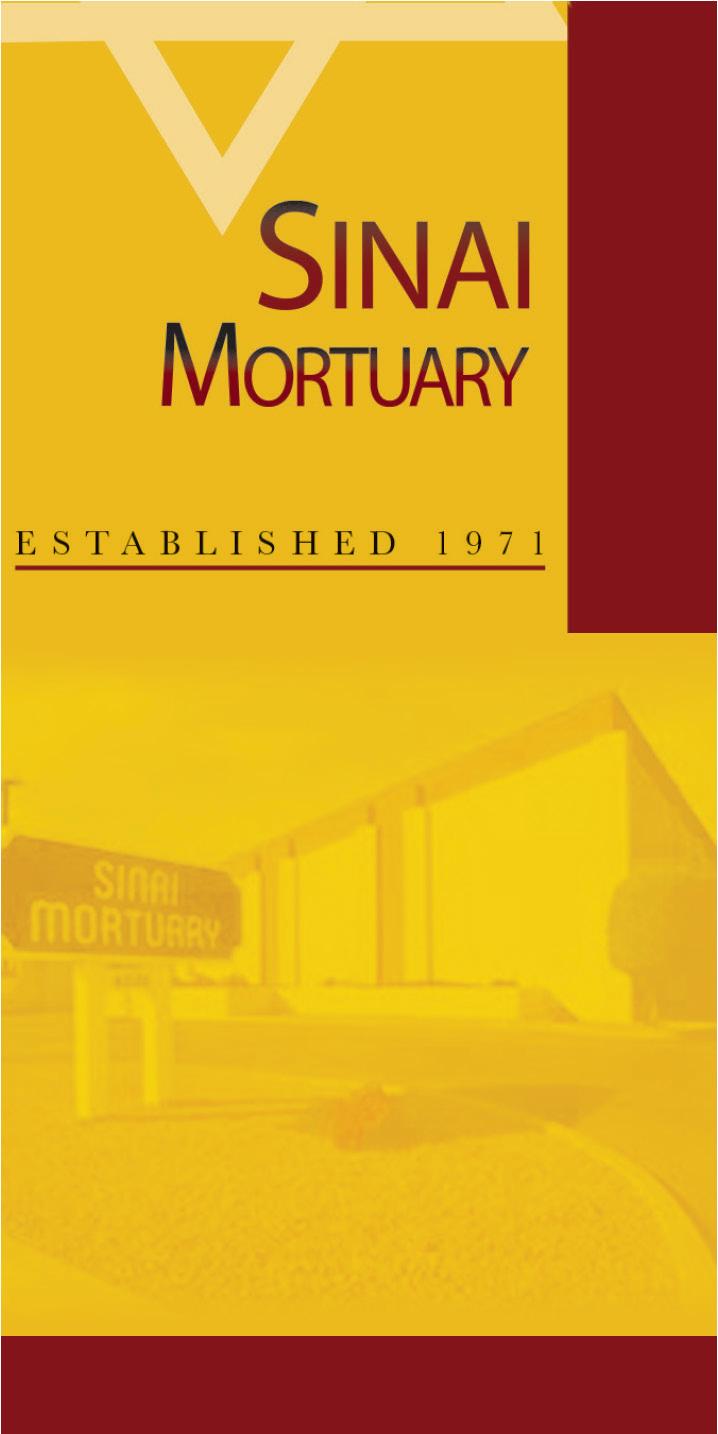
“I truly met Noah for the first time on camera; they got our real reaction,” she said. “They were not telling us to say certain things, maybe they would prompt a question if they thought it was awkward, but it was never you need to say this or that.”
“I couldn’t agree more. It was just natural, authentic and organic conversation,” said Ophir.
“It was Noah and I talking for about two hours, and they stood around and filmed. I was wondering when they would tell us to stop because we just kept going and going.”
Ophir was matched with Noah Dreyfuss, a 36-year-old divorced father and investment advisor who used to reside in Israel. During Ophir’s filming, it was mentioned onscreen that she and Tav had both been matched with men named Noah.
“It was hilarious, like, what are the odds?” she said. “They didn’t include that in the show’s final cut, but it was funny. I’m surprised that they didn’t mention we were sisters.”
She said it didn’t take long for people on social media to figure out their connection and all the messages have been positive, which is unusual for reality shows.
When Ophir’s episode aired she was traveling, so she wasn’t paying much attention to social media.
“All of this is happening and my social media is blowing up — I’ve been getting so many messages,” she said. “So much
love and support and a lot of questions about the process, how it happened and how I stumbled upon it — things like that.”
Tav said that she is having a similar positive experience. “A lot of old friends and people in the community are reaching out to me, like some of the rebbetzins at Chabad. It’s been great.”
Ophir still marvels at how it all happened and is happy to represent the Jewish community on a show that is being viewed internationally. “I think in Australia, it was like the number four most trending (show) and in Israel, it was like the number two most trending,” she said. “It’s getting a lot of exposure and I feel honored to represent our community in a positive way and show people that Jews are amazing.”
“I loved how Netflix showed the culture in Israel and kept in where I said that I was half Yemenite and spoke about my mom’s family in Afula and that she’s the only one in the U.S.,” said Tav. “I enjoyed how they included that Ophir grew up Modern Orthodox and she knows all these things about Judaism. I like how there are different levels (of Judaism) showcased. I admit I had a great time. Overall, it was a lot of fun.”
And when asked if they would want to return if the show gets picked up for a second season, they both had very different answers.
“It depends. That’s my answer,” said Tav. “I would be very happy to be on the show again or even a spin-off — a Gross sisters’ show,” said Ophir. “I am open to all opportunities.”
“I told you Ophir is made for this,” added Tav. JN
Chabad of Paradise Valley is hosting “Netflix’s Jewish Matchmaking: Aleeza Ben Shalom LIVE” at 7-8:30 p.m. on Sunday, June 11 at Embassy Suites by Hilton Phoenix-Scottsdale, 4415 E. Paradise Village Pkwy. S., Phoenix. Enjoy an evening with the host of Netflix’s “Jewish Marchmaking,” Aleeza Ben Shalom, as she shares behind-thescenes secrets and live matchmaking on stage. Tickets are $36-$200; for more information, visit jewishparadisevalley.com/aleezalive. (Jewish News is a media sponsor of this event.)
@
@
@



At the annual meeting of the Arizona Jewish Historical Society (AZJHS) on Sunday, May 21, several speakers emphasized the importance of the well-known Jewish expression l’dor v’dor, from generation to generation. The words are also inscribed on the plaque in the main hall in a dedication: “The Lewkowitz Family Sanctuary in honor of Jerry Lewkowitz from generation to generation,” with l’dor v’dor written in Hebrew.

The event introduced new board members, honored Dr. Robert Kravetz with the Louise Leverant Enduring Legacy Award and featured genealogy researcher and anthropological archaeologist, Emily Garber, as the keynote speaker.

Kravetz is the first recipient of the Louise Leverant Enduring Legacy Award. Leverant, who passed away in 2022, served as a past president and past secretary of the AZJHS.
“In many ways, Louise Leverant was the heart and soul of this organization and there was never a person more dedicated to what we are doing,” said Dr. Lawrence Bell, executive director of the AZJHS. “So, we decided to create an award in her memory.”
Rabbi Jeffrey Schesnol, associate director of the AZJHS, gave a tribute to Leverant. In it, he spoke about how genuine, honest and authentic she was and, as a dedicated board member, how the annual meeting was a labor of love for her because it honored people she cared about.
“We are more than individuals; we have connections — that’s how we’re born and that’s why we never completely die — we receive our inheritance, we leave our legacy,” said Schesnol. “Louise is a part of that long chain of life; it continues, l’dor v’dor, from generation to generation, through her children.”

“I’ve received many awards in the past,
but this one is much more meaningful because it’s in honor of Louise,” said Kravetz. “She was an extraordinary person and was always there for us, so, for me, this is going to be a very special award I will cherish.”
Kravetz is a retired gastroenterologist who still teaches, and is the oldest professor on staff, at the University of Arizona College of Medicine–Phoenix. He has served on the boards of the AZJHS, Bureau of Jewish Education of Greater Phoenix and the Jewish Federation of Greater Phoenix, among others.
Kravetz has also donated his extensive personal collection of medical artifacts that are housed in cases located in hospitals, medical campuses and doctors’ offices in the Greater Phoenix area. Both he and his wife, Nancy, have written and published comprehensive family histories.

“I’m a medical historian and very interested in family history, l’dor v’dor,” said Kravetz. “I believe the best legacy that you can give your family, your children and grandchildren, is for them to know the history of where they came from, their roots. There’s a quote, ‘If you don’t know where you came from, you don’t know where you are going,’ and I really believe that.”
He encouraged everyone to interview older relatives because he said if you don’t preserve the stories, they will be gone forever. “I urge all of you to interview and have your children interview you,” he added.
Garber, chair of the Phoenix Jewish Genealogy group and an AZJHS board member, said that the opportunity to impart these stories to the next generation occurs at “various simchas: Passover, Thanksgiving or just over the table when we get together for dinner each night.”
She shared results from research done by Emory University psychologists Robyn Fivush and Marshall Duke on
adolescents, evaluating their knowledge of their own family narratives and how it related to their resilience and self-worth. They found that the greater the child’s knowledge of family history, the greater their sense of control and self-esteem. Their confidence level in facing adversity in life was also much higher.



“Even more important, is the intergenerational connections involved in telling these stories and imbuing our offspring with these stories,” said Garber.
Garber read Kravetz’s family history books and reached out to his granddaughter, Nina Kravetz, to ask her about the impact the stories have had on her. Nina shared with Garber that she tells her grandparents whenever she looks at the books and through reading them, she knows her ancestor’s names and feels a connection to those people.
“She was so thoughtful and said these stories are but .001% of the lives of these people and yet it is such a gift. We don’t know other aspects of their lives but these stories themselves can give us a little bit a sense of who they were,” said Garber. “She also said it’s interesting because it gives her a feeling for how she fits into the greater Jewish diaspora.”
Garber also shared some history about her own family and mentioned that telling stories of difficult times is equally important as sharing the good times because it shows how people dealt with adversity, overcame it and became better as a result.
“It gives us a sense of accountability; it’s a little bit of a burden because for some of us, it’s something that we want to live up to when we see what they’ve gone through. The arc of their lives is instructive in itself.” JN
For more information, visit azjhs.org.

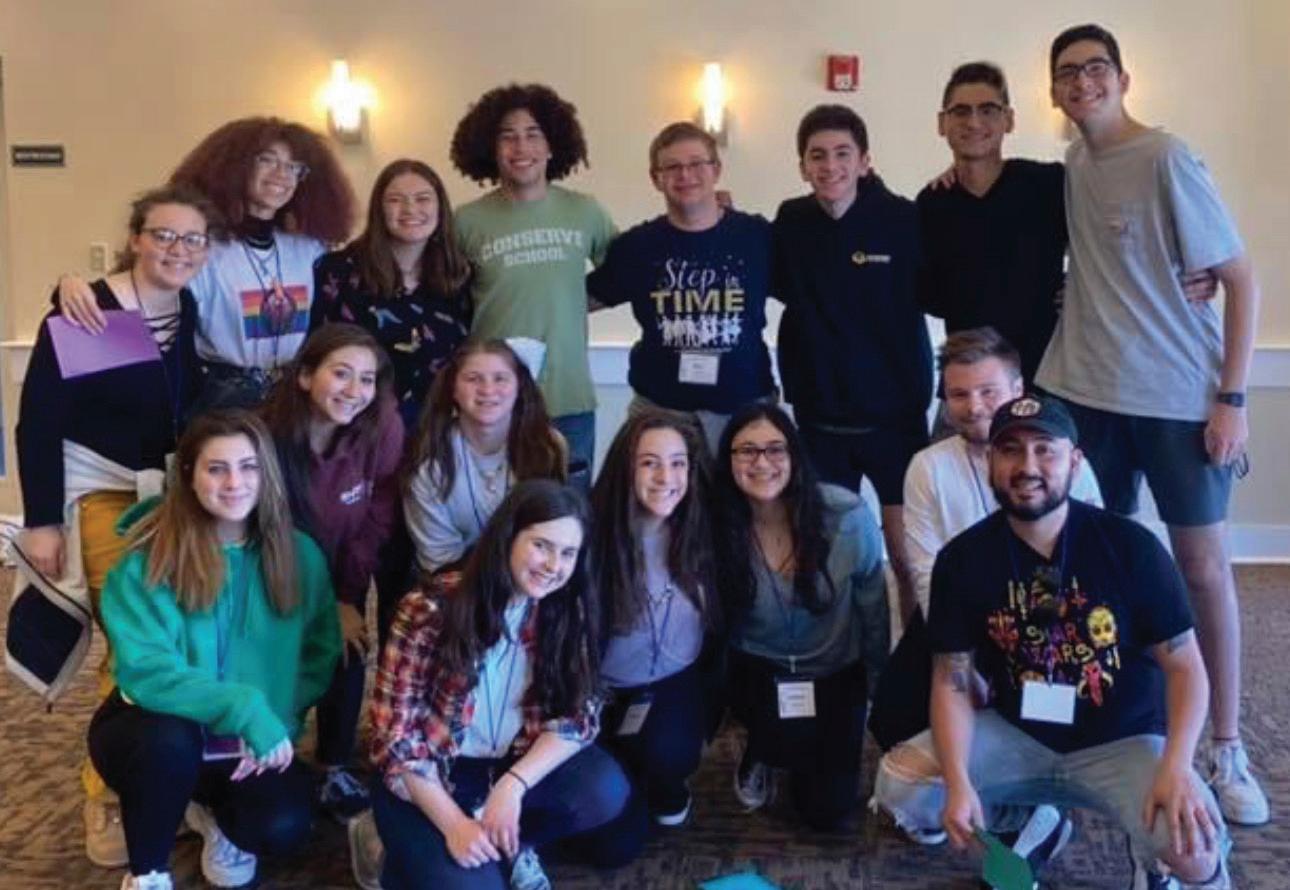
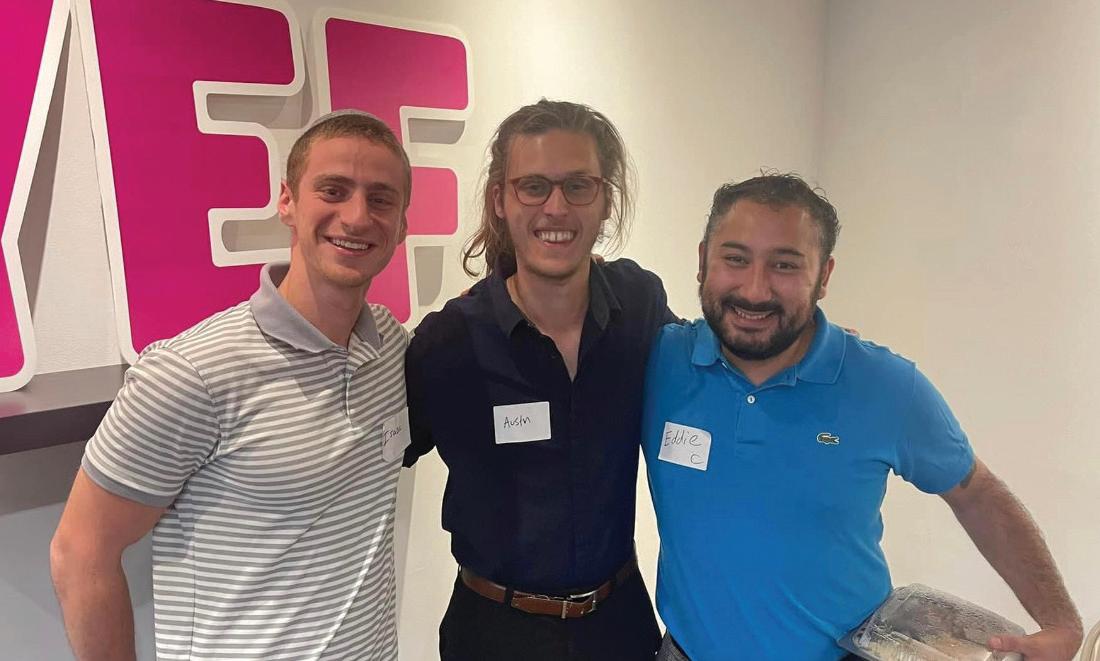
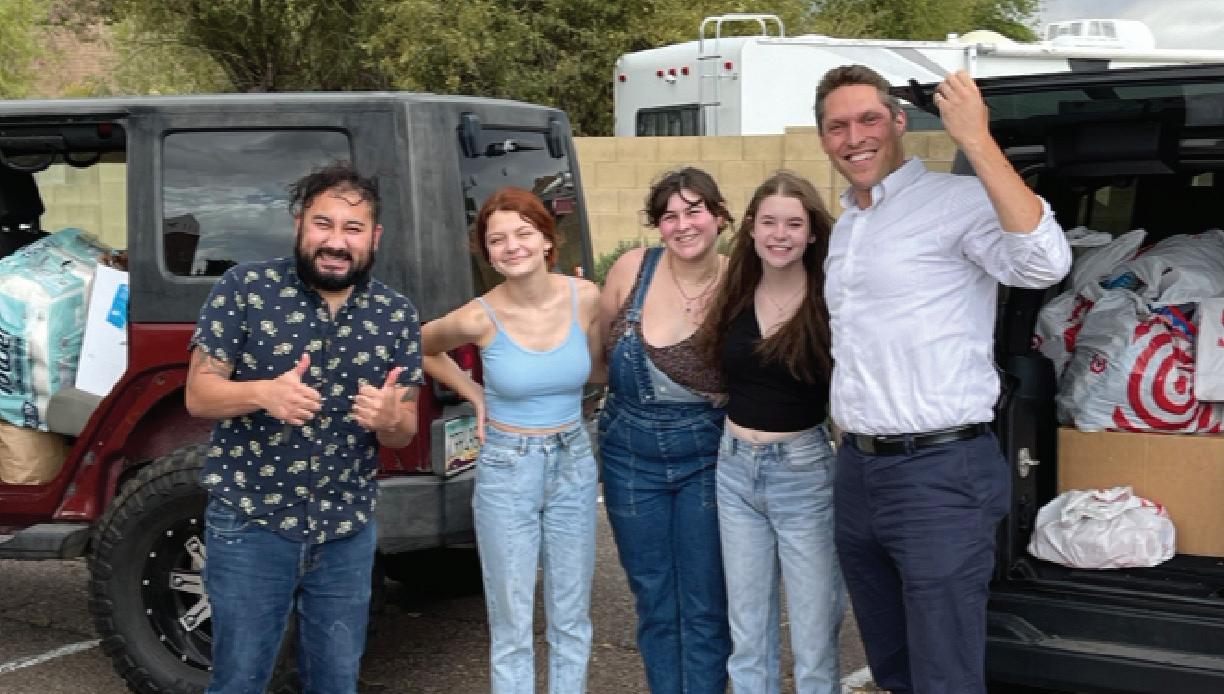

• Focuses on combating antisemitism and hate while promoting service and social action
• For 16-18 year olds
• Aug. 2023 - May 2024
• Monthly one-hour, in-person sessions filled with community building, learning and service


• Modest stipend given at the completion of the program
• Learn more at www.arizonajewsforjustice.org/ fellowships
When Rabbi Charlie CytronWalker was taken hostage along with a few of his congregants in their Colleyville, Texas synagogue in January 2022, it sent a shudder through the nation’s Jewish communities, specifically its synagogues. Jewish clergy were already keenly aware of the vulnerability to antisemitic attacks after a gunman entered Pittsburgh’s Tree of Life Congregation on Oct. 27, 2018, and murdered 11 people.
Upon seeing the news out of Pittsburgh, Rabbi Emily Segal’s friends in Christian ministry immediately reached out to her, realizing how traumatizing such an incident could be for a rabbi or any Jew. After the ordeal in Texas, however, she didn’t even receive a text.
“They showed up after Pittsburgh, but they didn’t show up when my colleague was held hostage,” she told a group of roughly 70 people on Sunday morning at Temple Chai in Phoenix, where she is the senior rabbi.
Her friends’ silence saddened her but rather than pretend it didn’t, saying nothing for the sake of comity, she told them how she felt and why she needed to hear from them when antisemitism, a growing concern, flared. Her honesty led to “a great conversation” and greater solidarity, she said.
Segal recounted her story during the first public meeting of Temple Chai’s Kulanu group, a new program of the Anti-Defamation League (ADL), which seeks to tackle antisemitism with the help of synagogues. Kulanu is an eight-month program dedicated to empowering congregations to address antisemitism and hate in their communities through education, community engagement and advocacy. Temple Chai is one of 120 synagogues in the country’s first official cohort and the first in Greater Phoenix.
“We all have circles of influence and talking to them about antisemitism is one powerful action you can take,” Segal said, illustrating one of the key concepts behind Kulanu, which takes its name from the Hebrew word meaning “all of us.”
“Fighting antisemitism takes a wholeof-society approach and our Kulanu network brings together congregations across the nation to engage in critical conversations about antisemitism and hate, as well as implementing initiatives engaging audiences beyond the Jewish community,” said ADL CEO Jonathan Greenblatt when he announced the rollout of the ADL program.
Since January, Kulanu leaders at Temple Chai have participated in ADL’s webinars, spoken to a range of community members and talked directly to law enforcement as they planned their first public event, which they decided would include a call to action, Sandy Kravetz, chair of Temple Chai’s Kulanu program, told Jewish News. Six speakers were invited with that impetus in mind.
Don Schon, ADL Arizona board member, used ADL’s data about the increase in antisemitic incidents to illustrate the scope of the problem. Schon described “having grown up in the cocoon of middle-class America, where antisemitism was not an existential concept” to him. However, a fivefold increase in antisemitic incidents over the last decade, made him want to get involved “by sharing factual data and opposing and condemning extremism and hate by any group against any group,” he said.
Combating antisemitism should be a generational project, said Rabbi Suzy Stone, campus rabbi for Hillel at Arizona State University, and explained that most of what she deals with in Tempe has to do with anti-Israel sentiment and the

Boycott, Divestment, Sanctions (BDS) movement, though even that is minimal in comparison to other college campuses. While some outside groups have littered ASU with explicitly antisemitic content, it is not a common occurrence.
“Ninety percent of what’s happening on college campuses, especially in the Jewish community, is vibrant and thriving and good. If it weren’t the case, I wouldn’t be a rabbi on a campus,” she said.
Hillel works closely with the administration to ensure students’ safety, but as long as there is no physical threat, free speech is paramount on campus, which means some students will say things that aren’t easy to hear or invite speakers that espouse uncomfortable views.
She suggested that parents and grandparents talk to students before they get to college about antisemitism and what anti-Israel sentiment is based on.
“Make sure that the first time a student hears that Israel is an ‘apartheid’ or ‘colonial’ state isn’t at a college campus,” she said.
When a parent in the room described being nervous when she heard her own child, a likely future leader in the Jewish community, criticize Israel using similar language, Stone pointed out that today’s Jewish college students often wrestle with complicated views about Israel, something Jewish leadership should understand without fearing it.
“Sometimes those are dog whistles and sometimes those are deeply inherent beliefs about wanting the State of Israel to be a better place,” she said. “There’s going to be a generation of Jews who speak very differently about their identity with Israel.”
Steve Glassman, a former teacher at Paradise Valley High School and the Bureau of Jewish Education of Greater Phoenix’s Hebrew High, also advised people to talk to their children, at any age, about any incident that upsets or worries them because they need guidance when
things happen.
Chelsea Lenowska, a former FBI agent, pointed out that along with the rise in antisemitic incidents, acts of hate against other minority communities have also risen. Happily, there has also been an increase in federal resources to investigate these incidents and 94 U.S. Attorney’s offices across the country have begun talking to local communities about combating hate crimes.
“When you see something, say something,” she said.
Detective Mike Hillman, the Phoenix Police Department’s liaison to the Jewish community, amplified Lenowska’s message and recommended documenting incidents and reporting them to Phoenix police’s non-emergency number, 612262-6151, or by contacting him directly at michael.hillman@phoenix.gov.
Jude Simons, a retired teacher and volunteer for Citizen Engagement Beyond Voting, explained how her nonpartisan organization works to help Arizonans be heard by their state legislators.
“I encourage you to get involved at local levels,” she said.
One person asked what he could do to help even if he didn’t have an incident to report. Given the increase in dangerous and unchecked rhetoric across the board, Lenowska suggested that the most consequential thing a person can do is to speak up when an acquaintance, colleague or friend says something offensive, even though it can feel difficult or intimidating.
“People are getting comfortable saying things that are just wrong and if nobody says anything, they don’t stop. But if I interject, they might listen to me because they know me. That’s the biggest thing that we as individuals can do — use our sphere of influence,” she said. JN
For more information, visit templechai.com/ programs.html.
TO REPORT AN ANTISEMITIC INCIDENT OR ACT OF HATE AGAINST ANOTHER MINORITY COMMUNITY, CONTACT DETECTIVE MIKE HILLMAN AT MICHAEL.HILLMAN@PHOENIX.GOV, OR CALL THE PHOENIX POLICE DEPARTMENT’S NON-EMERGENCY NUMBER AT 612-262-6151.
For Talia Gutman of Scottsdale, golf connects her to people, especially her father. “It’s something special that we share. I can practice and play with him all the time — just for fun.”
The Sonoma State University (SSU) golfer, who is Jewish, also connected with her nine teammates and proved herself invaluable this season. She won Freshman of the Year for her conference, the California Collegiate Athletic Association.

Valentine Verhunce, head coach for women’s and men’s golf at Sonoma State, commended her for capping off a terrific season with the best individual finish and placing second in the post-season event to lead SSU.
“She puts a lot of effort and time into her craft and it’s starting to pay off,” he said.

“We finished maybe not strong as a team, but at least we have goals for next year,” said Gutman, 19, who played in tournaments as far away as Hawaii this year.
“I feel like I ended strong with only a couple hiccups in between,” said Gutman, who is on partial scholarship at SSU in Northern California. “So, golf is going pretty good right now.”
Gutman’s parents, Michael and Robyn
Gutman, are both physicians. Michael is an otolaryngologist and Robyn is a pediatrician. They are all members of Congregation Or Tzion in Scottsdale.
Talia Gutman started playing golf at seven years old. But it wasn’t until her freshman year of high school, when she broke her wrist while ice skating, that she realized that golf was so important to her.
“I just started doing it a lot more and it gave me a new perspective on golf,” said Gutman, who swung with one arm and putted and chipped with one hand until she recovered. “My family’s just been super supportive. So, I just continued with it.”
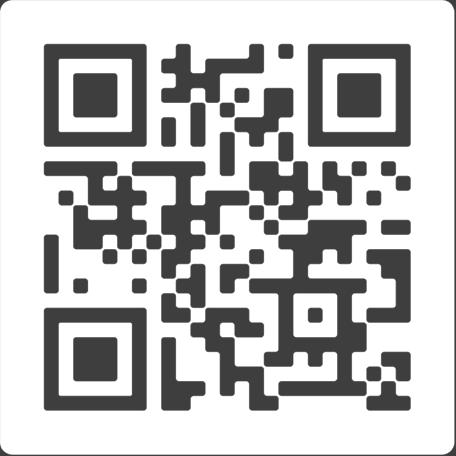




Gutman played junior golf for the Junior Golf Association of Arizona, completing numerous tournaments. She also played for her high school, Scottsdale Preparatory Academy.
She attended Hebrew school at Or Tzion and traveled to Israel for her bat mitzvah.
“It was an amazing opportunity and I got to share my bat mitzvah with another girl who shares my name, Talia Hoffer.”
She remembers vividly that first time she went to Israel and saw the places in person she had previously just heard stories about.
“One of my favorite places to go was
Tel Aviv and we spent numerous days just wandering around.” She said she loved the food, visiting the old and new synagogues and seeing so much religion intermixed with day-to-day life.
“It really made me happy because in any other place, you barely see synagogues and there’s not a lot of Jewish life unless you go search it out yourself. So, to see it all in one place was pretty amazing.”
Today, Gutman is studying environmental science and geography at SSU. “I like working towards cleaner energy (solutions) and creating a safer, more sustainable environment.”
“She’s equally as smart in the classroom
as she is on the golf course,” said Verhunce. “Talia’s a very, very intelligent young lady.”
Gutman said she plans to play golf the entire four years she’s at the university and compete in every tournament.
She admits that golf is a continual learning process, and no one can ever achieve perfection in the sport.
“You can only practice to get better,” said Gutman. “There’s unlimited potential in the sport as long as you put the work into it.” JN
"INSPIRING

Karolyn Benger was not surprised when she read that Republican Rep. Paul Gosar of Arizona District 9 employs a prominent follower of Nick Fuentes, given the congressman’s past support of and connections to Fuentes, a white supremacist leader. After all, two years ago Gosar drew the ire of Jewish groups across the political spectrum when he joined fundraising forces with Fuentes, who questions the number of Jews who were killed in the Holocaust and believes that Israel has a malicious influence on U.S. policy. The Arizona congressman even appeared at two of Fuentes’ “America First” conferences.
Extremism trackers like the AntiDefamation League (ADL) and Southern Poverty Law Center (SPLC) have long classified Fuentes as a hate-group leader who advocates antisemitism and Holocaust denial, in addition to racist and nativist ideologies. Yet, none of this deterred Gosar from associating with him.
“I wasn’t shocked by this latest news, but
I am saddened that the Republican party isn’t saying anything and doesn’t seem concerned about this growing problem of white supremacy in our country — that shows a lack of leadership,” Benger told Jewish News.
In May, the political news outlet Talking Points Memo (TPM) published an article detailing close ties between Wade Searle, Gosar’s digital director for the last year, and Fuentes. In it, reporter Hunter Walker extensively outlined and documented Searle’s digital trail under variations of the persona “ChickenRight” to prove that he’s not a mere admirer of Fuentes but a known ally, earning a government salary.
This revelation “is a big deal,” according to Cassie Miller, senior research analyst, lead for SPLC’s Intelligence Project, which monitors domestic hate groups. “It’s really crucial that people take this seriously and don’t meet it with a shrug.”
After reading Walker’s article, Benger, who is an active member of the Greater
Phoenix Jewish community and the vice president of the Arizona Interfaith Movement, turned to Twitter to ask various Republican leaders in Arizona to release statements holding Gosar accountable for hiring a “Groyper,” the name for Fuentes’ network of supporters.
News in an email.
“The white nationalist movement wants to wear people down so they won’t push back,” Miller told Jewish News. “People are exhausted with politics and that’s a dangerous place to be. The movement wants people with real political power parroting these ideas until people become more comfortable with them and the people who want to push back are more apprehensive to do so.”

Co-Sponsored by AZJHS and Red Rocks Music Festival

She will leave the details up to the Republican Party but insisted that its leaders are obligated to say or do something. The fact that there’s a white supremacist working in a congressional office “doesn’t just push the envelope, it should blow up the mailbox,” she said.
“It is shameful that they censured Cindy McCain for supporting a Democrat but aren’t interested in censuring another Republican for actively employing white supremacists. I would think they’d want to reject that faction of their party but they seem not to want to upset it. I don’t have much hope they’ll say anything,” she said.
Thus far, her pessimism seems justified. Elected Republican officials, both state and federal, have been quiet. Neither the Republican Speaker of the House Kevin McCarthy nor the Arizona Republican Party have released a statement or responded to Jewish News’ request for comment.
Though the outrage level isn’t where Miller and others would like it to be, there has been pushback.
The Republican Jewish Coalition (RJC), an advocacy group which has criticized Gosar’s support of Fuentes in the past, released a statement calling this news “part of a pattern for Congressman Paul Gosar.” The statement focused its vitriol on Fuentes, who the RJC called “a vile antisemite who traffics in nauseating Jew hatred” whose “bilious rhetoric has absolutely no place in the Republican Party or in the halls of Congress.”

Sarah Kader, ADL Arizona’s community manager, released a statement calling for an investigation “into the conduct of Rep. Gosar and his staff, which pose a threat to the security of our nation.”
youth, he moved from Tel Aviv to Los Angeles, winning Yamaha’s national keyboard competition, performing in Japan and the Kennedy Center, attending Tanglewood in 1998 and receiving a Bachelor of Music Composition from the Eastman School of Music in 1993.
His own latest trio recording, Destinations, reached #1 in the US jazz charts and explores his musical in uences, while his rst recording, Playground, features him with John Clayton and Je Hamilton with whom he has performed in the Clayton-Hamilton Jazz Orchestra since 2001.
Tamir Hendelman appears on recordings by Paul McCartney, Michael Buble and Diana Krall. He has performed with Benny Golson, Eddie Henderson, Houston Person, James Moody, and Sean Jones and has recorded and arranged for Richard Galliano, Lori Bell, Graham Dechter and Claudio Roditi.
Summer Music Series at AZJHS RSVP: https://www.azjhs.org/tamir or call 602-241-7870
Non-AZJHS Members $36 | AZJHS Members $25
Sunday, June 11, 3 PM LIVE PERFORMANCE IN PERSON ONLY azjhs.org 122 E. Culver Street, Phoenix, AZ 85004
© 2023 Arizona Jewish Historical Society. All Rights Reserved.

Maricopa County Recorder Stephen Richer is the only Republican so far to respond to Jewish News’ requests for comment on the matter, and he doesn’t believe that Gosar will face any consequences.

“Nick Fuentes’ virulent antisemitism has been known for a while, but many politicians have long associated with him with no consequence,” Richer told Jewish
On May 19, White House Deputy Press Secretary Andrew Bates released a statement regarding President Joe Biden’s reaction to the Gosar news saying, “The dangerous agenda this person chooses to associate with — including by promoting an extremist who openly praises Nazism and Hitler — could not be more opposed to the fundamental values of our nation.”
Three days ago, five Jewish freshmen Congressional Democrats also wrote a

letter to McCarthy asking that Gosar be censured and asking the Speaker to be “an ally to the Jewish people and take a strong stand against the antisemitism and white supremacy flourishing in your own party.”
Gosar turned off his Twitter comments and replies and seems to be laying low, though in his most recent weekly newsletter to constitutents, in addition to including a link to white supremacist content, he complained that “in spite of my 12-year record supporting Israel and Jewish causes, I frequently get labeled and smeared as a ‘Nazi’ or a ‘supremacist’ or ‘anti-Semite.’” When asked in person to respond to news of his white supremacist staffer, Gosar told Ben Jacobs, an independent journalist, “No comment.” “When I followed up he said ‘take a hike’ as he meandered away,” tweeted Jacobs.
This wasn’t Jacobs’ first go-around covering Gosar’s ties to extremists. In a 2021 article for Intelligencer, Jacobs posited that even though Gosar has said and done similar things to Republican Rep. Marjorie Taylor Greene of Georgia, who has faced official Republican rebukes, his style is much less flamboyant so he’s able to “fly under the radar of the national media.” Republicans, who were occupied by the debt ceiling and fallout from New York’s Republican Rep. George Santos’
arrest, likely won’t face blowback for inaction on Gosar without even more external pressure.
Paul Rockower, executive director for Jewish Community Relations Council of Greater Phoenix, wants to see real accountability for Gosar this time.
“We are trying to make sure it is known that he (Gosar) is actively employing a neo-Nazi and that Congressional leadership owns it, because this is beyond the pale,” he said.
For Haley Orion, whose own research on the Searle-Fuentes connection informed the TPM article, the muted reaction across the board has been frustrating.
“It wasn’t even the lack of Republican response that annoyed me, it was the lack of response from almost anyone,” Orion told Jewish News. People who are shrugging this news off as simply more evidence of Gosar’s ties to antisemites and racists “are missing the point of the (TPM) article.”
She runs the AZ Right Wing Watch Twitter account, writes the Arizona Right Watch newsletter and spent the last nine months building a case against Searle and Gosar, researching and archiving their social media content. As Gosar’s account began to use more far-right Groyper imagery, it seemed unlikely that the
64-year-old Congressman was posting as, what she termed, a “Zoomer Groyper.”
“It means something when you’re letting a follower of a white nationalist cult have free rein of your social media account, making propaganda for this group,” she said.
She hopes that people will begin to look more critically at “the whole industry behind these politicians. It seems silly to think that this one kid is the only white nationalist in politics right now,” she said.
Curating large, public social media accounts like Gosar’s is not a trivial job. It’s one that can have lasting and harmful consequences.
Kader’s statement confirms that ADL’s own research points out that “antisemitic
When your health changes, are you thinking about...
Where will you get the care you need?
Who will take care of you?
How much will care cost?
How will you pay for it?
What are your options?
Sun Health At Home® can answer these questions so you can age confidently and independently in your home.

language can and does normalize other acts of antisemitism — particularly when it comes from an elected official with a large platform.”
JCRC Chair Alan Zeichick remains optimistic that “the vast majority of members of Congress, in both parties, are non-racist and are not antisemitic, and sincerely don’t want to associate with those people.” Still, he admitted that “there are a few politicians for whom these haters are attractive,” and they’re watching to see what will happen.
“If Rep. Gosar gets away with it, yes, we may see more hires like this in those few offices,” he said. JN
“THE DANGEROUS AGENDA THIS PERSON CHOOSES TO ASSOCIATE WITH — INCLUDING BY PROMOTING AN EXTREMIST WHO OPENLY PRAISES NAZISM AND HITLER — COULD NOT BE MORE OPPOSED TO THE FUNDAMENTAL VALUES OF OUR NATION."
WHITE HOUSE DEPUTY PRESS SECRETARY ANDREW BATES
 SHANNON LEVITT | STAFF WRITER
SHANNON LEVITT | STAFF WRITER
On June 24, Congregation Beth Israel (CBI) Cantor Seth Ettinger will be playing the lead role in the Arizona Musical Theatre Orchestra’s (AZMTO) showcase of “Parade,” a musical about one of America’s most infamous antisemitic incidents.


Ettinger is set to play Leo Frank, the Jewish manager of an Atlanta pencil factory accused of murdering a girl whose body was discovered there in 1913. Despite little evidence, Frank was found guilty of killing Mary Phagan, who had worked at the factory, and was sentenced to death. In 1915, when Frank’s sentence was commuted to life in prison, he was kidnapped by an armed mob and lynched. The case spurred both the creation of the Anti-Defamation League, the Jewish civil rights group whose activities include monitoring neo-Nazi movements, and the revival of the Ku Klux Klan.
The musical’s Broadway revival earlier this year caused protests by the National Socialist Movement, a neo-Nazi group, who rejected the consensus that Frank was innocent of the crime (he was posthumously pardoned in 1986). Protesters carried signs calling Frank a pedophile, a charge neo-Nazis have made many times before.
Stephen Schermitzler, AZMTO’s founder and director, doesn’t believe




that his relatively new and underground orchestra would elicit a protest. However, he recognizes that antisemitism is ever present and this story “is a touchy subject in America right now,” he said. “Some people don’t like seeing things like this brought to light but it’s necessary and those protests are a sign that this is the time to tell the story.”
When Ettinger learned that Schermitzler chose “Parade” to showcase, he decided to audition. “I felt it would be my honor to play this role both as a Jewish person and a Jewish clergy member,” Ettinger said.

Ettinger has never seen a live production but is familiar with the music. His wife Sarah, however, loves the show and pushed him to audition.
“For people who haven’t seen it, “Parade” is a very powerful and provocative piece about how antisemitism has been part of American history since Jews first arrived in the country. I’m doing a lot of research on Leo Frank and exploring what it must have been like for him to be such an outsider, and having experienced antisemitism as a kid; I’m also drawing on those memories,” Ettinger said.
AZMTO’s showcase of “Parade” will not be like a typical musical. Like all of AZMTO’s public productions, it was cast only three weeks before the performance
and the players will not come together to rehearse until June 24 — the same day the show goes up.

That schedule works especially well for a busy cantor like Ettinger. “Doing it in one day with little commitment is perfect,” he said. He has been learning his part alone but even though some of the cast members have never sung together or even interacted in person, “there’s just magic that happens,” he said.
The performers are responsible for their own costumes and some will not be off book (fully memorized). Held at Phoenix’s Central United Methodist Church without sets and only minimal choreography, performances are semi-staged and fully narrated concerts. The performers go through the full score and libretto without any adaptations.
“Parade,” written by Jason Robert Brown and Albert Uhry, first played on Broadway in 1998 and won Tony awards for best book and best score. It’s not a show that has been performed much in Greater Phoenix due to the large orchestra and cast requirements, which is one reason it works so well for AZMTO, a company that can provide musicians and singers for every written role and present the music as it was composed, Schermitzler said.
Schermitzler started AZMTO in 2022



as a Facebook group for local actors and musicians. Many theater companies tout the fact they use local talent but actually depend mostly on out-of-town actors and musicians. “I wanted to showcase the talent in this state and around the Southwest region,” Schermitzler said. Within six months, the FB group had grown to 1,000 members — many of them Jewish — and began showcasing known musicals once a month. The first show sold 400 tickets.
Since 2016, Schermitzler, who is not Jewish, has been part of CBI’s High Holiday choir, which is where Ettinger met him and discovered their mutual love of musical theater. Some AZMTO members have been on Broadway while others have sung in the world’s opera houses. Ettinger knew early on he wanted to be a cantor so musical theater has always been more of a hobby. This company, and this show in particular, have been a creative gift, he said. JN


Arizona Musical Theatre Orchestra will showcase “Parade” on June 24, at 7 p.m. For tickets, visit azmto.org.

This article incorporated reporting from Jewish Telegraphic Agency.





Rabbi Arthur Green gave the commencement address on May 18 at the Jewish Theological Seminary, the Conservative flagship where he was ordained 56 years earlier.
His talk was mostly a response to political turmoil in Israel, but he also urged the graduates to pioneer a “new Judaism.”
“I had the good fortune, as a young seeker, to run into the Jewish mystical tradition, especially the writings of the early Hasidic masters,” said Green, who taught Jewish mysticism and Hasidic theology at Brandeis, the University of Pennsylvania and Hebrew College. “I have been working for half a century to articulate what could simply be called a Judaism for adults living in freedom. I am now near the end of my creative course. But you young people are just at the beginning of yours. We need you to enroll — however you can — in the task of the generations, that of re-creating Judaism.”
That is the language of Jewish Renewal, with which Green, 82, is deeply identified. Renewal isn’t a denomination, really, but a movement that was born in and reflects the 1960s and 1970s counterculture.
Baby boomer Jews disillusioned with the large suburban synagogues that they considered soulless embraced Jewish practice that was spiritual, egalitarian, environmentally conscious and largely lay-led. Renewal’s signature institution was the havurah — intimate prayer, study and social fellowships. Its soundtrack were the liturgical melodies composed by the hippy-ish, “neo-Hasidic” Orthodox rabbi, Shlomo Carlebach. And its rebbe — to the degree that an egalitarian movement had a central figure — was Rabbi Zalman Schachter-Shalomi (1924-2014), a refugee from Hitler’s Europe and former Lubavitcher Hasid whose Judaism channeled the spiritual “New Age” of the 1970s.

These ideas and approaches may be familiar to you even if you’ve never heard of “Renewal.” Rare is the synagogue that doesn’t try to offer a more intimate spiritual experience for its worshippers, to shrink the distance between pulpit and pew, to incorporate new Jewish music and, in non-Orthodox and a number of Modern Orthodox synagogues, to increase the participation of women in prayer and study.
Those prayer shawls with rainbow stripes? That was a Schachter-Shalomi innovation.
How a counterculture movement came to be absorbed by the mainstream is the subject of a paper in a new collection, “The Future of Judaism in America.” edited by Jerome Chanes and Mark Silk. Chanes is the co-author, with Shaul Magid, of the chapter on “Renewal” that claims it as one of the most influential if not defining Jewish movements of the last 50 years.
“While Jewish Renewal has never boasted a large number of members, its influence on the larger American Jewish community has been significant, in terms of its liturgical experimentation, its revisions of ritual and its overall metaphysics,” they write. “It has also served as an ongoing conduit of information and inspiration from its own past — the havurah movement, radical politics, feminism — to the next generation.”
I came to the paper after giving a lecture at my own synagogue on “The Crisis
of the American Synagogue.” I spoke of declining affiliation rates, plunging enrollment in supplementary schools, the shrinking number of non-Orthodox synagogues. Most of my adult life has been spent in synagogues, havurot and institutions heavily influenced by Renewal. If the Jewish Renewal movement revitalized synagogue life in the last century, could it also be blamed for its struggles in this one?
Magid, a fellow in Jewish studies at Dartmouth College, and Chanes, an adjunct professor of Jewish Studies at Baruch College, presented their chapter at a conference dedicated to the release of the book, held Tuesday and Wednesday at Trinity College in Hartford, Connecticut. Magid made the claim — considered bold, at this small gathering of Jewish historians — that the “three most important Jewish figures in 20th century America Judaism” were Mordecai Kaplan, Menachem Mendel Schneerson and Shachter-Shalomi.
Kaplan, the founder of Reconstructionist
Judaism, downplayed the supernatural element of Judaism and instead called it a “civilization” defined by its people and culture. Schneerson, the Lubavitcher rebbe, turned an insular Orthodox sect into an outreach movement that promotes ritual practice among secular Jews.
Schachter-Shalomi combined their visions and imagined a Judaism, said Magid, that “is no longer used as a tool for Jewish survival, but rather as a project for Jews to become part of the global community, to contribute to the global community.” Environmental awareness became a hallmark of Renewal, as did absorbing influences from other religions, especially Eastern ones. “He really did take Schneerson’s teaching about bringing Judaism to the streets and expanded it further to bring Judaism to the mosque, to bring Judaism to the monastery, to create another way of being Jewish which was not afraid of the world.”
In an interview with Magid before the conference, I asked if he and Chanes might be exaggerating Renewal’s influence.
“I’m sure there will be people who will claim that case but I don’t think so, no,” he said. Magid acknowledges that few people regard themselves as direct disciples of Schachter-Shalomi, and yet, like Kaplan, his influence is felt widely and deeply. “Each one of them had a futuristic vision,” he said. “They were able to cultivate a way of thinking about Judaism that was before their time and that eventually came into being in many ways.”
One of those skeptical of SchachterShalomi’s influence is Jonathan Sarna, professor of Jewish history at Brandeis, who gave the keynote talk at the conference. In his response to the panel on Renewal, Sarna doubted SchachterShalomi was as influential as Carlebach, the Conservative theologian Abraham Joshua Heschel or the Modern Orthodox philosopher Joseph Soloveitchik. “I don’t think we should delude ourselves into thinking that every innovator is a new Moses,” Sarna said.
Benjamin Steiner, a visiting assistant professor in religion at Trinity, also wondered if Renewal had spread “everywhere in the country, or only in large urban areas with
masses of educated Jewish students.”
SEE JEWISH RENEWAL, PAGE 12
critical
We are a diverse community. The views expressed in these opinion pieces do not necessarily reflect the views of the officers and boards of the Jewish Community Foundation, Center for Jewish Philanthropy, Jewish Federation of Greater Phoenix, Cleveland Jewish Publication Company or the staff of the Jewish News. Letters must respond to content published by the Jewish News and should be a maximum of 200 words. They may be edited for space and clarity. Unsigned letters will not be published. Letters and op-ed submissions should be sent to editor@jewishaz.comRabbi Zalman Schachter-Shalomi, whose Judaism channeled the spiritual “New Age” of the 1970s, left, with Ram Dass. COURTESY OF JOAN HALIFAX/WIKIMEDIA COMMONS/CC 2.0
“HOW DO WE MOVE FORWARD… IN ARTICULATING A JEWISH THEOLOGY FOR TODAY THAT IS BOTH INTELLECTUALLY HONEST AND SPIRITUALLY REWARDING?”
n a bustling marketplace, two traders observed a street vendor selling beautiful pieces of artwork. One trader marveled at the talent and creativity of the artist, praising their ability to capture the essence of the subjects. The other trader disagreed, stating, “It is the paint and the brush that bring life to these paintings.”
Unable to reach a consensus, the traders decided to seek the advice of a renowned art critic known for his insightful perspectives. They presented their differing opinions and awaited his response. The art critic pondered for a moment before sharing his wisdom, saying, “My esteemed traders, you are both mistaken. It is neither the artist’s talent nor the tools they use that truly make these paintings come alive. It is your own emotions and interpretations that breathe life into the artwork.”
This parable highlights cognitive bias. Cognitive bias refers to our brain’s tendency to make systematic errors in thinking. It’s like a mental shortcut that our minds take to process information quickly. These biases can cause us to deviate from rational and objective
JEWISH RENEWAL
CONTINUED FROM PAGE 11
Listening to Magid’s response to such caveats, I thought of the quote often attributed to music producer Brian Eno: “The first Velvet Underground album only sold 10,000 copies, but everyone who bought it formed a band.” Renewal’s influence spread beyond its founding havurot because many of their principals went on to important positions in academia and Jewish organizations, including Green, Rabbi Everett Gendler, Sharon Strassfeld, John Ruskay and Rabbi Arthur Waskow.
Small but influential Gen X and millennial institutions also bear Renewal’s fingerprints: the “Jewish Emergent Network” of independent congregations; New York’s Romemu and B’nai Jeshurun synagogues; egalitarian, traditional-style yeshivas like Hadar. Bayit, with a number of principals associated with ALEPH: the Alliance for Jewish Renewal, is an online artist’s collective and publisher of Jewish books, including a forthcoming Shabbat prayer book.
One of its contributors, Rabbi Rachel
reasoning. They influence how we perceive, interpret and remember things. Sometimes, our biases can lead us to make judgments or decisions that are not entirely accurate or logical. Advertisers often capitalize on these biases.
ITake, for example, anchoring. Anchoring is a tactic used by advertisers to capitalize on our biases. Imagine you are browsing for a new smartphone online. As you search, you come across two options: Phone A priced at $1,000 and Phone B priced at $500. Your mind becomes anchored to the higher price of Phone A, which serves as a reference point. Now, you find a third option, Phone C, which is priced at $800. Despite Phone C being more expensive than Phone B, you perceive it as a better deal because it is lower than the anchor price of Phone A.
In this scenario, the initial higher price of Phone A serves as an anchor, influencing your perception of the subsequent options. Even though Phone C is still relatively expensive compared to Phone B, the anchoring effect makes it appear more favorable in comparison to the higher-priced Phone A. This demonstrates how anchoring can shape our judgment and lead us to make decisions based on the relative value compared to an initial reference point.
But, rabbi, how does all this relate to the weekly Torah portion? I am so glad you asked. In the coming weeks, we will read how the Israelites embark on their journey through the wilderness. Almost
immediately, they begin to complain. Their grievances start with the food, expressing their dissatisfaction with the manna they receive and longing for the meat and fish they had back in Egypt, conveniently ignoring their past enslavement. These complaints continue regarding other matters such as water, land and Moses’ leadership. Academics refer to this as a pessimism bias, where one sees the world as half empty rather than half full. It’s the belief that if something can go wrong, it inevitably will.
This way of thinking reminds me of Eeyore, the unhappy donkey from A.A. Milne’s “Winnie-the-Pooh” books. Eeyore approached life with gloom and depression, perceiving the world as an ill-fated place. While Winnie and others attempted to lift his spirits, Eeyore’s natural inclination was to see the glass as half empty. I am certain you have encountered such an individual resembling Eeyore and understand their pessimism can be challenging to be around.
That is why Judaism urges us to cultivate an optimistic bias, what the rabbis refer to as “hekarat tov” or “recognizing the good.” The Rabbis tell the story of Nathan Gamzu, a Talmud teacher who always saw the good in everything. “Gam zu l’tova,” meaning “this is for the good,” was considered a shortened version of his name. Rabbi Akiba, one of Nathan Gamzu’s students, shared a valuable lesson he learned from
his mentor. Akiba found himself in the woods with only a torch, a rooster and a donkey. However, the flame went out due to the wind, the rooster was devoured by a predator and the donkey ran away. Despite these misfortunes, Akiba could only say, “this too is for the good.” Later, he discovered that a group of bandits had passed through the area. Had they spotted the flame or heard the animals, Akiba surely would have been captured. Gam zu l’tova — this is for the good! Each of us lives with some kind of bias. In fact, it can even change by the day or the situation. I urge us to challenge ourselves to engage the world like Nathan Gamzu and “Do Jewish” by seeing the positive and potential for good. Don’t be an Eeyore. JN
Barenblat, who was ordained by ALEPH, has argued that the influence of Renewal is felt even within Orthodoxy. “If you look at the Open Orthodoxy movement, if you look at the ordination of women as ‘maharats’ [by Yeshivat Maharat, a women’s seminary], the future of women as rabbinic leaders in Orthodoxy is already here,” she said on an episode of the “Judaism Unbound” podcast. “It’s not everywhere, but someday it will be.”
Magid and Chanes similarly claim a number of leading Jewish feminists as products of Renewal — they mention Paula Hyman, Eva Fogelman and Judith Plaskow — although some in the audience at Trinity insisted they gave Renewal too much credit for a movement by and for women. In there essay in the Silk/ Chanes Book, Sylvia Barack Fishman of Brandeis University offers a counternarrative of Jewish innovation over the past 50 years. In her chapter, she credits the “active partnership” of women in revitalizing American Judaism: Women’s religious expressions, she writes, “create
social contexts and are distinguished by a communal dynamic, quite unlike the isolated, personalized Jewish experience, which some have claimed defines contemporary Jewishness.”
I came away convinced that Renewal has had an outsize influence on Jewish life, especially for baby boomers like me. But I also wondered if its outward-facing, syncretic Judaism failed to instill a sense of obligation to Jewish forms, institutions and peoplehood — unlike, by contrast, Orthodoxy in all of its booming presentday manifestations.
I asked Magid in what ways Renewal might have fallen short.
“Part of its failure is that it is very, very anchored to a certain kind of American counterculture that no longer exists. It hasn’t really moved into a 2.0 phase,” he said. “There are students and staff members that are still very tied to (Schachter-Shalomi’s) vision, and then there’s a younger generation, Gen Z, who have read some of his work and they’re influenced by it, but they really are think-
ing much more about, well, how does this translate into a post-countercultural America?”
Magid also feels the ideas of Renewal will become more important as American Jews’ attachment to Israel wanes, and the living memory of the Holocaust recedes.
If Rabbi Green’s speech at the JTS graduation was any indication, then the ideals of Jewish Renewal still hold their appeal.
“We need a new Judaism in America… where we also have the fresh air needed to create it,” he said. “How do we move forward… in articulating a Jewish theology for today that is both intellectually honest and spiritually rewarding?”

The audience of future Jewish leaders and teachers leapt to its feet. JN
The views and opinions expressed in this article are those of the author and do not necessarily reflect the views of JTA or its parent company, 70 Faces Media.
When Sharon Clement moved to Arizona from Chicago more than 30 years ago, she continued working as a real estate agent; later, she became a mortgage broker, working in a bank for several years until deciding she had had enough and was ready to retire.

“You know, the business world is not glamorous,” said Clement, 73. “Not that I’m doing anything that’s terribly glamorous now, but it’s perfect.”
Clement’s “perfect” job now is working with seniors through People Who Need People, Senior Care & Companionship, the business she started in 2015. She tried retirement but got “terribly bored” and decided she needed to do something. At the same time, a friend who worked as a doula told her that one of her clients had a grandmother in a nursing home who needed assistance.
“I said, ‘I’m calling her. I can help her.’” said Clement. “She was a Jewish woman, Anna Levy was her name, and I was with her until the day she died.” Clement is also Jewish but said that most of her clients are not.
Levy had Alzheimer’s disease and when they first met, Clement said she was very depressed and didn’t want to get out of bed
or go anywhere.
“I got her up, socialized with her, got her moving and we had so much fun together,” she said. “We laughed, we danced and we sang. It was a wonderful match.”
When Levy passed, the receptionist at her senior care facility referred Clement to another family looking for companionship for their mother. She worked with that woman for a couple of years and was beginning to pick up more clients when COVID19 hit. The state locked down the senior facilities and Clement was out of business. Recently, a friend put a blurb about her services in a neighborhood newsletter and a family reached out to hire Clement. This woman lives independently but has some physical limitations, so Clement helps her with household chores and drives her wherever she needs to go.
“I’ve been very lucky to work with some wonderful people and get to know the families and get close with them — I like the relationships,” said Clement.
Many of the people who hire her are part of the “sandwich generation,” adults who are caring for their aging parents while also raising or financially supporting their children.
So, between working full time and car-
ing for children, it leaves little time for entertaining an aging parent. Also, facility workers are busy “taking care of the hard stuff,” as Clement puts it, and don’t have time to engage residents or take them out, so people “end up just sitting around.”
She said even small things can make a difference. For example, Clement helps one woman to get up, dressed and ready to go to the lunchroom. After a short time, she developed a whole gang of friends that would sit at the lunch table and visit.
“I would say hello to everybody, even the people that weren’t my clients,” she said. “Touching their hand, just (providing) some human contact — people need that and it gives me a purpose, which I think is good for me too.”
Since many of her clientele have some form of dementia or Alzheimer’s disease, it can sometimes get tricky. “I had one lady who took a couple of shots at me, and I had to duck and weave to get away,” she recalled.
She admits she was very nervous when she first started the work, but it came together naturally.
“One lady that I took care of, when she passed, I went to the service at the Jewish cemetery and I looked over and
five feet away was my mother’s and father’s grave,” said Clement. She told the woman’s daughter that she hoped they were all playing a mahjong game somewhere together.
Experiences like that make her believe that this is the work she is supposed to be doing.
“It’s the most gratifying work I’ve ever done. You come to a point in your life where you need a purpose — you find out how important it is to have a purpose,” said Clement. “As long as I’m able, I’m going to keep doing it.” JN
For more information, contact Clement at sharon. clement@gmail.com.
Imagine your life having a complete support system. It's like an extended family working together, supporting you, raising your spirits and making life easier. Every day. Your meals, your chores, even a hobby or two, all looked after and taken care of. Smiles at every turn, a chef who knows just how you like your favorite meal. A life thriving through connection. That’s senior living at Maravilla Scottsdale.
TUESDAY, JUNE 20TH • 2:30PM
Join us and enjoy delicious refreshments & chef-prepare appetizers while learning more about the engaging lifestyle and supportive services offered at Maravilla Scottsdale. Please call 480.269.1952 to RSVP.


As I prepare for a conference this week, one of my most difficult challenges is leaving my pet — who to leave them with and how they will be cared for. Thinking about the feelings I have for our almost 3-year-old yellow Labrador Ruby, I chose to revisit a relevant topic as we consider what is best for the fur babies and our loved ones.
Helping our loved ones navigate the realities of aging can be heart wrenching, such as recognizing when it is time to give up the family pet. As life revolves full circle, you may find yourself in the position of taking away the dog from the very person who rounded out your childhood experiences by including a pet in the happy chaos. A quick search of the literature includes exponentially more information to support the advantages of pet therapy for a wide range of disorders and diseases. However, according to American Pet Products Association
(APPA), Baby Boomers, the historically largest segment of the pet owner’s market (37%) are nearing a point where they are no longer able to care for a pet. So, what happens when a dose of reality does not include the “hair of the dog?”
It is a heartbreaking dilemma for those suffering from debilitating diseases to consider a new home for their faithful companion. The physical and emotional stress that affects the patient and family caregivers can also adversely affect proper pet care. Some pets may even mirror the declining condition of their owners. Poor hygiene and worsening behavior may be a clue that your pet needs a change.
Other signs that it may be time to find a new home for your pet include:

• Physical condition limits the ability to provide your pet with adequate exercise
• Inability to drive or use public transit to purchase food and supplies or take him to the vet
• Injuries incurred while attempting to care for the pet
• Medical treatments causing lethargy, increasing difficult to provide care
• Numerous medical bills that make it financially unable to provide care, especially if your pet also has serious
medical condition requiring treatment
• Pet is noticeably unhappy due to lack of attention, exercise or other care
If you recognize these circumstances, it is always better to start executing a plan rather than react in panic mode. It is so stressful when rallying around an aging family member and the juggling act includes what to do with the family pet. Though it is difficult to accept, don’t delay after coming to this conclusion. Being an active participant in the re-homing of the pet is paramount.
Ultimately, asking a loved one to adopt the pet is usually the most ideal solution, especially since he or she is already familiar with them. Even if they can’t take them in, friends and family are also great resources for potential adopters. Confirm that your pet has a clean bill of health from the veterinarian and is up to date on all vaccinations.
If your aging senior signed an adoption contract when they first got their pet, they may be required to return it to the same person or organization. Some rescue groups specify that an animal must be returned to it, so contact the organization if you’re unable to find the contract.
Reach out to rescue organizations. They may have foster families available to take in your pet or help you interview adoption candidates to find the right home.
Though you’ll pass on many of your pet’s supplies to their adopter — like the food and water dishes, favorite toys and bed — consider holding onto a keepsake, like a collar, that will serve as a reminder of this special time in their life.
When the transition period ends and the inevitable occurs, your loved one will need support. Encourage your aging loved one to keep in touch with the adopter to receive updates to ease their anxiety for the wellbeing of their beloved pet. Don’t be afraid to talk about the pet; though it may seem insensitive, it’s often helpful to the grieving process to reminisce. Keep an eye out for depressive symptoms including fatigue, social withdrawal, loss of appetite or weight loss, loss of interest in hobbies and neglecting personal care. Giving up a pet is a devastating situation but when the pet’s well-being and your loved one’s own are at stake, it is the best choice for everyone. JN
 JESSICA LEVIN-BOZEK, LPC | SPECIAL TO THE JEWISH NEWS
JESSICA LEVIN-BOZEK, LPC | SPECIAL TO THE JEWISH NEWS



As we age, our bodies change and we can become more susceptible to specific health conditions. Oftentimes, diagnosing illnesses can be tricky because of overlapping symptoms and other agerelated issues. Because of this, misdiagnosis is common among older adults and can have severe consequences including delayed treatment, unnecessary procedures and a decline in overall health. This is not what we want for ourselves or our loved ones.
The following common illnesses are frequently misdiagnosed in older adults. If you, or anyone you know, are experiencing symptoms related to these conditions, don’t hesitate to contact a healthcare professional.


HEART DISEASE: Heart disease is the leading cause of death among older adults but symptoms such as chest pain and shortness of breath can be mistaken for other health conditions, such as acid reflux or anxiety. Seniors can avoid misdiagnosis by discussing symptoms with their doctor and getting regular check-ups to monitor their heart health.

DEPRESSION: While a very common condition, depression is often overlooked in older adults. Tell your healthcare professional if you or someone you love is experiencing fatigue, loss of interest in hobbies and changes in sleep patterns that can sometimes be mistaken for typical signs of aging. And most importantly, know that seeking mental health support is just as important as taking care of your physical health.
URINARY TRACT INFECTIONS (UTIS): UTIs are incredibly common in older adults. If symptoms include confusion, agitation and incontinence, they could be resolved quickly and easily by visiting your primary care doctor. Unfortunately, these symptoms can be misdiagnosed as dementia or Alzheimer’s disease. Avoid misdiagnosis by getting regular check-ups and reporting any signs of UTIs to your doctor immediately.
PARKINSON’S DISEASE: Parkinson’s disease is a degenerative disorder that affects the nervous system and causes tremors, stiffness and difficulty with movement. All of these symptoms could be attributed to aging. If you believe your symptoms are more than normal signs of aging, don’t hesitate to talk to your doctor, who may refer you to a neurologist who can perform a thorough evaluation and provide an accurate diagnosis.
THYROID DISORDERS: Thyroid issues like hypothyroidism and hyperthyroidism can cause fatigue, weight gain and depression. These symptoms can also be attributed to normal aging or other health conditions. Avoid misdiagnosis by asking your doctor to test thyroid functions during routine check-ups.
Misdiagnosing common illnesses is a problem but it doesn’t have to be for you or your loved one. Protect yourself and practice self-care by scheduling regular check-ups. Be an advocate for yourself or bring a loved one to the appointment with you. Be honest and be heard. Open communication with a doctor, or seeking a specialist evaluation when necessary, can help ensure older adults receive proper diagnosis and treatment. JN
The Jewish Family & Children’s Service (JFCS) Integrated Healthcare Centers are focused on educating individuals about preventative care and symptoms that can often be misdiagnosed in seniors. For more information, visit jfcsaz.org.
MISDIAGNOSING COMMON ILLNESSES IS A PROBLEM BUT IT DOESN’T HAVE TO BE FOR YOU OR YOUR LOVED ONE.
ENJOY 10K YOUR WAY WHEN YOU SIGN BY JUNE 30TH!
decade ago, after the Scottsdale Jewish senior’s fifth back surgery, a doctor told Rose she simply couldn’t sit in a chair all day anymore. She happily accepted the news because it meant she could finally focus on work she’d always wanted to do: community service.


Rose’s long-held dream was to work with diverse communities, to build relationships and to bring people together.
“As long as you’re kind and understanding, you find that people are more alike than not,” Rose told Jewish News.
Some of the groups she works with are Tomorrow We Vote, a Black and Brownled non-partisan, nonprofit Arizonabased organization helping young people to vote; Aliento, a community organization serving undocumented, Deferred Action for Childhood Arrivals (DACA) and mixed immigration status families; National Council of Jewish Women of Arizona (NCJW AZ), a Jewish women’s organization advocating for women’s rights and social justice; and the Islamic Center of the East Valley.
she could best offer assistance in letting the public know about his efforts on keeping elections secure, work that should not be partisan, she said.
“I’ll never give up,” she said. To illustrate her point, she set her ringtone as the theme song from the movie “Rocky.”
Joanie Rose wakes up early most mornings eager to jump out of bed and get to work, even though she’s
long retired from her career as a corporate travel agent for the agency she owned with her husband, Jerry. More than a




“Joanie and I became close friends years ago through our shared passion for activism and advocacy across all communities,” said Civia Tamarkin, president of NCJW AZ. “She does advocacy for everything!”
As much as Rose would like to build bridges between people, her volunteer work is on issues generally associated with progressive politics. She strives to speak with people of all viewpoints, and “is happy to talk to anyone,” but has found only a few Republican takers.
“Many of the Republicans I do talk to have become Independents or even Democrats,” she said.
Rose is the outreach coordinator for Stand Indivisible AZ, whose mission is “to enhance the general welfare of Arizona communities by facilitating educational opportunities for our members and the general public,” according to its website.
Imagine everything you need to flourish—now and for years to come. It’s all here, in one captivating place. The wealth of activities. The stylish setting. Fabulous cuisine. Attentive service. And expert health care support should the need arise.
It’s everything you need to live your life, your way.
Please call 602.635.2602 today to schedule a your tour.
Rose also contributes guest columns regularly for Arizona Capitol Times, where she toggles between highlighting good work in the community and politics. The first week of May, she wrote about NCJW AZ’s Ruth Place, a trauma recovery center, suggesting it was an effort everyone could feel good about supporting; her latest, dated May 22, details the limits of Congressional Republicans’ proposed “Limit, Save, Grow Act 2023” and what it could mean for Arizonans. Rose grew up in northern California and attended Oakland’s Temple Sinai, where she was confirmed but did not have a bat mitzvah. It wasn’t yet typical for Jewish girls to become a bat mitzvah in the mid-20th century. Aside from celebrating Jewish holidays with family and friends, she doesn’t talk much about her Judaism.
“When it comes to religion, the important thing is how you treat other people. I feel like I walk the walk and that’s how I’m judged,” she said.
She met her husband when they were 15 years old and married him five years later. The couple has two daughters and two grandsons. Twenty-five years ago, the Roses moved their travel agency to Arizona and never left. By the time Joanie retired, she had built a large network of friends and contacts which just keeps growing.
While she can no longer use step ladders or vacuum her house due to her back problems, she still “has more energy than my kids,” she said. She has a standing desk in her office where she writes her columns and makes jewelry and greeting cards.
“All of us at Indivisible work independently and then bring people together,” she said, adding that she thinks of her role as helping people find each other rather than as intentionally political.
There’s also a social element to it.
“I love meeting all these people and getting to know them. They all have stories that are absolutely amazing and I hear what they go through, their pain and I try to understand. I ask, ‘What can I do to make things better for you?’” she said.
To make things better she’s willing to work seven days a week, running around town, making introductions between various groups and talking to people about finding the best ways to connect individuals. For example, in late May, she met with Maricopa County Recorder Stephen Richer, a Republican, to ask how
Even though she’s sometimes frustrated by a lack of kindness and respect, Rose is an upbeat and optimistic person.
“The bottom line is building bridges, not walls,” she said. JN
"AS LONG AS YOU’RE KIND AND UNDERSTANDING, YOU FIND THAT PEOPLE ARE MORE ALIKE THAN NOT."





Drenching rainstorms, pounding hail and extraordinarily strong winds are just weeks away! Is your roof strong enough for the monsoon onslaught? Considering that we had a very wet winter, your roof may not be ready to weather the upcoming storms. Therefore, now is the time to get your roof inspected, repaired or even replaced, before the roofing companies get slammed with emergency calls.
There are nine areas of the roof that are most vulnerable to damage:
1. The “dead” valleys






If you have peaks on your roof, the valleys between those peaks need cleaning so the rainwater can run smoothly down and off. Unless you’re a roofer or experienced climbing up, walking on and climbing down from a roof, don’t go up there!
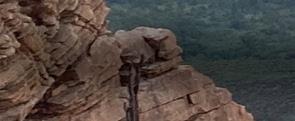

Hire a professional to rinse off leaves, dirt and other debris that can cause water to pool and also inspect the roof.




2. Aging ridgelines
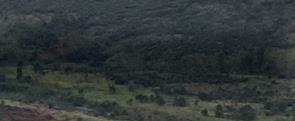
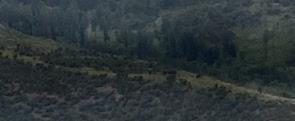










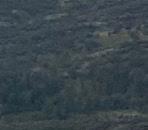



Peaks on the roof may indicate there are ridgelines with vents for the attic. Over time, those vents can leak and need repairs. Check the wood on the attic ceiling for signs of leaks.







3. Clogs in scuppers and gutters
Scuppers, the drainage lines on a flat roof, need cleaning before the storm season arrives.







4. Missing gutters
Most Arizona homes, especially those
built in the past 25 years, don’t have gutters. Because heavy year-round rainfall is not an issue here, many homeowners don’t notice any problems. However, most homes could benefit from having a gutter or two to carry away the water from the foundation. You may want to consider having gutters installed.
5. Missing or broken tiles
Rustic-looking, true-clay tile roofs can be vulnerable to damage in the Arizona sun and wind. They can break or crumble in crucial areas. Concrete tile roofs are sturdier, but they can also break and need replacing.

6. Disintegrating shingles
Quality asphalt shingles are among the most long-lasting roofing materials. But over time, the shingles can crack, curl and shrink. Granules begin to chip off the shingles, leaving them exposed to gusty wind and rain. Rather than patching, it may be time to replace your shingle roof.

7. Flat roofs



Many Southwest-style homes in Arizona have what are called “flat” roofs. However, they are not really flat. They generally slant slightly or have drains that allow water to flow into gutters or scuppers that carry away water. Those drainage areas need to be clean and clog-free. Many older flat roofs are covered with built-up asphalt and tar. You can redo a built-up roof with foam to give it more protection. If you install foam, have it inspected every five years to be sure it’s
in good condition. Birds often peck holes in the foam on flat roofs. People walking on a flat roof can also do damage.


8. The underlayment


The underlayment is the paper or felt laid over the plywood sheathing on top of the house. That layer is then covered with tile or asphalt shingles. The underlayment will not last forever. A roofing expert can pull up a few tiles or shingles to look at the quality and condition of the underlayment. It may need to be replaced.














Vulnerable spots can develop on your roof where there are chimneys, walls, skylights, plumbing, exhaust vents from bathrooms and kitchens and fascia boards.

If the dissimilar materials and flashings that cover the joints aren’t done correctly, water and wind can damage the roof.
If you suspect your roof may have even one of these problems, call a professional roofer licensed by the Arizona Registrar of Contractors. If you have never had a roof inspection, now is the time to find out how solid your roof is before you have to learn the hard way during a storm. Even a fairly new roof may need some checking.
Once the monsoons arrive, the roofing contractors’ phones will ring off the hook and it could be weeks until anyone can take a look. Be proactive, not reactive. JN


Rosie Romero, Jr. is co-owner of Arizona’s home improvement radio program “Rosie on the House.” For a Rosie on the House Certified Partner, visit rosieonthehouse.com/search-partner/.

boards, ladanything that’s
chlorinated. clean cells
raising the chlorinated. oxidizer product system. The material killed algae and regularly or you generator to do licensed Contractors circuit power haven’t your pool code. features and safety self-closing, selffirst-aid
Update your haven’t anti-entrapment federal running, Devote time cleaning includvacuuming, brushskimmer treating very, very

 DANIEL FISCHPAN | SPECIAL TO THE JEWISH NEWS
DANIEL FISCHPAN | SPECIAL TO THE JEWISH NEWS


We can always perseverate on problems outside of our control. It is far better to find solutions to problems within our control. Thirty-year fixed mortgage rates are at 20-year all-time highs. While we cannot control mortgage rates, we can control how we negotiate a real estate transaction. Here are three ways to lower your interest rate on your mortgage:
1. Buydown programs
A buydown allows a buyer to have a reduced mortgage rate for a period resulting in a reduced monthly payment. The duration is usually one to three years. There are many different types of buydown programs. The most common one is called a 2-1 buydown. The seller of the property will pay for this cost through a seller concession. Seller concessions are written into the real estate contract when making an offer. The example below will require the seller to pay $11,182.68 in seller concessions.
If you are buying a $600,000 mortgage with a 20% down payment, your loan amount will be $480,000. As of June 1, 30-year fixed mortgage rates were 6.99%. That means your monthly principal and interest payment would be $3,190. With a 2-1 buydown, the mortgage interest rate will be 4.99% for the first year, 5.99% for the second year and 6.99% for years three through thirty. The table below shows how much you will be saving a month during the 2-1 buydown program.
As of May 2023, the average cost of solar panels in Arizona is $2.64 per watt making a typical 6,000 watt (6 kW) solar system $11,071 after claiming the 30% federal solar tax credit now available.
This is lower than the average price of residential solar power systems across the United States which is currently $3.00 per watt.
If you got the seller concession, which option should you pick?
It depends. If you think mortgage rates are expected to go down over the next two years, then it is better to select the buydown program. If you are unsure where rates are going, or you think rates will continue to rise, then buying down the rate for the full 30 years makes more sense.
According to data from the Solar Energy Industries Association (SEIA):
• Arizona’s national ranking: 5th (7th in 2022)
2. Buy down the rate for all 30 years
important in summer, particularly during the monsoons when dust storms and heavy winds hit the area and can quickly turn your pool into something resembling a swamp. By the way, a green murky pool invites mosquitoes and most importantly is a safety hazard. If someone falls in and sinks to the bottom, they may not be visible until it’s too late.
That way you can spend more time this summer enjoying the cool, refreshing beauty of your pool. The cost of pool service can range greatly due to the size and complexity of a pool. A tiny backyard spa would require minimal attention, whereas a negative edge pool or a pool with slides and special water features can be more costly.
The buydown programs have something unique that buying down the rate for the full 30 years does not have, an escrow account. When you buy down the rate with seller concessions for all 30 years, that money is gone after closing. You will never see it again. Conversely, seller concessions used for a buydown programs goes into an escrow account. Every month a portion of those funds are used until the buydown program ends.
While it is nice to have reprieve of lower monthly payments for two years it may be nicer to have it for the entire life of the mortgage. If you take the $11,182.68 and put it towards buying down the rate, your new rate would be 6%. That is a monthly principal and interest payment of $2,878. This saves you $312 a month for the life of the loan. Not all seller concessions are this large. You may get $5,000 in seller concessions, which could be used towards closing costs or buy down the rate to 6.499%.
• Homes in the state powered by solar: 974,221 homes
This matters because if you decide to refinance to a better rate while still in the buydown program, the unused funds from the seller concession will come back to you in the form of a check or reduction in principal balance. JN
• Percentage of state's electricity from solar: 9.86%
• Solar companies in Arizona: 368 (76 manufacturers, 171 installers/developers, 121 others)

After completing his MBA in finance, Daniel Fischpan moved from New Jersey to Scottsdale to focus his energy in helping people navigate through the mortgage process at Modern Home Lending in Scottsdale where he is a loan officer. For more information, contact him at 480-300-2829 or daniel@ modernhomelending.com.
3. Buy down the rate yourself
10. Automated pool cleaners
An automated pool cleaner can help you by vacuuming your pool daily. Whether you clean your pool yourself or hire professional a pool service company, it is important to clean the pool and monitor the chemicals on a weekly basis.
Either way, whether you go the DIY route or hire a professional, start the process now so you can enjoy the pool sooner than later, and more often. JN
As negotiations go, you may or may not get any seller concessions. In that case, you can pay out of pocket to lower your rate. A mortgage broker can provide you with different rate options. The following chart is an example of those rate options. As mortgage rate drops, so does the monthly payment. However, the cost to buy down the rate goes up.
solar co-op in Phoenix, as I hear from more and more people looking for help navigating the process of going solar,” said Adrian Keller, Arizona program director for SUN. “I’m particularly looking forward to helping folks access our Solar Energy Assistance Program, so that families for whom the financial burden is just too high can also share in the benefits of power from the sun.”
One of the top 50 Realtors in Phoenix/Scottsdale as voted by Phoenix Magazine! BUYING?


She said it took about eight months from when she signed the contract until going “live” using the panels and her battery. The hold up was due to supply chain issues and other delays with Salt River Project (SRP) and the city of Scottsdale.
Thanks to this year’s partnership with the City of Phoenix, the co-op will have funding available to help 10 low-income families install a six-kilowatt rooftop solar system (a standard household system size) at no cost.
“Phoenix has more solar per capita than any other big city, and we’re proud to connect even more residents to this cost-saving, sustainable resource through this program,” said Phoenix Mayor Kate Gallego in a statement. “The co-op


AmyRosenthalRealtor@gmail.com www.AmyRosenthal.com

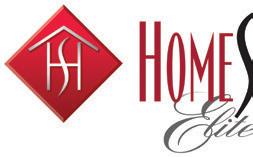
Ettinger is thrilled with the outcome and said that she can run the internet, electrical outlets, refrigerator, microwave and a mini-split system (a heating and cooling system that allows you to control the temperature in an individual room) in her bedroom on the energy from the battery powered by her solar panels. She said the only thing she can’t run off the battery is her whole-home HVAC system and her washer and dryer.
“I have an app on my iPad and phone that shows me my consumption in real time and the different settings that you can activate during the year —
• Total solar investment in the state: $16.1 billion
• Prices have fallen 53% over the last 10 years
• Growth projection: 7,269 MW over the next 5 years
THIRTY-YEAR FIXED MORTGAGE RATES ARE AT 20-YEAR ALL-TIME HIGHS. WHILE WE CANNOT CONTROL MORTGAGE RATES, WE CAN CONTROL HOW WE NEGOTIATE A REAL ESTATE TRANSACTION.
Many people bank digitally, either online or using a mobile app.
According to a March 2022 Ipsos-Forbes Advisor survey, more than three quarters of Americans, 78%, prefer to bank digitally. Banking this way allows you to pay bills, deposit checks or transfer money from the comfort of your home or even if you are traveling.
But, like everything we do online, steps must be taken to safeguard personal information.
“Before signing into an online portal, ensure you’re on an authentic banking website or an official mobile application. Look for proper spelling, correct logos and other indicators that a provider is who they claim to be by only using verified portals,” said Christian Romero, JPMorgan Chase & Co.’s community manager in Phoenix. “And don’t give anyone your account numbers or any personal or financial information on the phone unless you initiate the conversation.”
“Our online banking system requires a strong password, prompts for password change regularly and a multi-factor authentication requirement, we also offer various security notification options,” said Rachel Guerrero, assistant vice president and treasury management officer, with Bank 34 in Scottsdale. She offered some general safety tips to follow:
• Start with a strong password.
• Change your password regularly.
• Consider adding multi-factor authentication (MFA) as part of your login process. MFA would add another authentication step such as a one-time passcode be sent to the user via email, text message or automated voice call that must be entered before each login.
• Never allow your browser to save passwords.
• Ensure your operating system is up to date and antivirus is installed.
• Set up security notifications to be alerted via email or text message when certain online or account activity occurs.
“Avoid using common information like birth dates, Social Security numbers, driver license numbers, home addresses or family names. Someone who steals identities could access that information,” suggested Romero.
George Weisz, chairman of the board at Scottsdale Community Bank, added, “Use private and secure Wi-Fi internet connections and use screen filters to prevent others from viewing your device’s display screen during your private online banking activities while in public places.” Banks also have measures in place at their end to deter fraudulent activity including

transaction limits/filters/reviews, secure encrypted communications, wire callback verifications and ongoing cybersecurity training. Weisz and Guerrero both said that knowing and engaging with their customers is key, along with educating them on best practices and communicating fraud trends.

Weisz shared an example of one of these trends: Someone might claim to be from a company you do business with (such as your utilities company) and threaten to shut off service if you don’t make a payment immediately. These sense-ofurgency and scare tactics are red flags. In addition, be wary of unexpected communications claiming to be from your bank or any service provider. If the person claiming to be from your utilities company or bank demands payment using a peer-to-peer (P2P) service rather than your usual method of payment, let them know that you’ll call the company yourself to handle it.

“Look up the official phone number and reach out independently to confirm whether you do actually owe money and how you should send it,” he said.
“Never click on suspicious links in a text or email or grant anyone remote access to your phone or computer,” added Romero. “To prevent fraud, banks will never call, text or email asking for you to send money to yourself or anyone else.”
Romero also added if a deal or offer sounds too good to be true, chances are it probably is. If you receive an email, phone call or text where someone is asking you to confirm your information or saying you’ve won something, refrain from providing information, even if it might look legitimate. Don’t give anyone your account numbers or any personal or financial information on the phone unless you initiate the conversation.
There are also precautions to take when using P2P services. Through P2P apps, the user can transfer funds from his bank account to another individual’s account via the internet or a mobile device.
“Try to use P2P apps for paying people you already know and trust,” said Weisz.

“Always confirm that the receiver of your payment transfer is who you really intend to pay and for how much, carefully review each transfer for accuracy before clicking the “send” button, be leery of scams (i.e. recipient names that do not align or match up with the phone number or email token provided for the individual you intend to pay) and payees that only accept peer-to-peer transfer as an exclusive method of payment.”
If you suspect a fraudulent transaction has occurred on your account, time is of the essence.
“The sooner a bank knows about
an issue, the sooner they can help,” said Romero. “There are several layers of protection and actions that can be taken but reaching out for assistance via phone is the quickest way of resolving a problem when your account has been compromised. Additionally, you can report suspicious emails online as well.” Weisz echoed that contacting the bank immediately is crucial. “They will often times provide additional instructions to prevent the suspected fraud or remediate actual fraud,” he said. “If it becomes
apparent that fraud is suspected or has taken place, usernames and passwords should immediately be changed and debit/credit cards should be immediately deactivated and replaced with new ones for all accounts at the financial institution to prevent further fraud exposure.”
Banking from your computer or mobile device is a convenient way to manage your money and following safe practices while banking online can help to deter fraud and protect your personal information.

If you have ever opened a credit card, purchased a car with a loan or bought a home with a mortgage, chances are you are aware of your credit score. Credit scores range from 300-850 (the higher the better) and are one piece of the puzzle that lenders look at when determining whether or not to extend a loan or credit card. A good credit score can help the borrower access a greater variety of loan offers, lower interest rates and better terms.
The credit score tells the company how likely you are to pay your debts on time and is calculated using a mathematical formula — called a scoring model — based on the information located in your credit report. The three major providers of credit reports are Equifax, Experian and TransUnion.
According to Experian, the common factors that credit scoring models consider are often split into five categories:
• Payment history: Making on-time payments on your credit accounts can help your scores. But missing payments, having an account sent to collections or filing bankruptcy could hurt your scores.
• Credit usage: How many of your accounts have balances, how much you owe and your credit utilization rate — the portion of your credit limit that you’re using on revolving accounts — all come into play here.
• Length of credit history: This category includes the average age of all your credit accounts, along with the age of your oldest and newest accounts.
• Types of accounts: Also called “credit mix,” this considers whether you’re managing both installment accounts (such as a car loan, personal loan or mortgage) and revolving accounts (such as credit cards and other types of credit lines). Showing that you can manage both types of accounts responsibly generally help your scores.
• Recent activity: This considers whether you’ve recently applied for or opened new accounts. Also, you do not have just one credit score. Each score depends on the data used to calculate it, the scoring model (which may depend on the type of loan product the score will be used for) and
even the day the score was calculated based on your credit report.
If you are looking to improve your credit score, there will be specific steps to take based on your unique situation. But according to Equifax, there are some factors to consider that can help almost anyone boost their credit score:

• Review your credit reports. When looking to improve your credit score, a good first step is to review your credit reports.
Federal law gives you the right to get a free copy of your credit report every 12 months from each of the three nationwide credit bureaus: Equifax, Experian and TransUnion. Due to hardships created by the pandemic, everyone in the United States also can get a free credit report each week from each of these three agencies through December 2023.
After making sure there are no inaccuracies or signs of identity theft and fraud, check to see if you have any unpaid balances or accounts that have gone into collections. It’s a good idea to tackle this negative information first by paying off as many old debts as you can.
• Pay on time. One of the best things you can do to improve your credit score is to pay your debts on time and in full whenever possible. Payment history makes up a significant chunk of your credit score, so it’s important to avoid late payments. If you struggle with on-time payments, consider using automatic payments for your accounts or setting up alerts so you are reminded to pay.
• Keep your credit utilization rate low. As mentioned above, it’s

typically best to keep your credit utilization rate at or below 30%. Outside of reducing your spending, you can lower your utilization rate by asking your credit card company for a credit limit increase.
• Limit applying for new accounts. Applying for new lines of credit will usually lead to a hard inquiry, which can negatively affect your credit score. So, if you’re hoping to improve your score, try to limit how often you apply for new accounts. Opening a new line of credit can also decrease the average age, or length, of your credit history, which is another factor used in calculating your credit score.
• Keep old accounts open When trying to increase your score, avoid closing any old accounts that have been paid off, even if you no longer use them. Keeping the accounts open will help maintain the length of your credit history.
Most negative information, like late payments, will generally remain on your credit report for up to seven years. However, Chapter 7 bankruptcies can linger for up to 10 years.

The amount of time it takes to improve a damaged credit score varies depending on the circumstances and there’s no one-size-fits-all solution that will change your credit score overnight. Improving your credit score takes effort and patience. JN
Equifax, Experian and TransUnion have a toll-free telephone number and centralized website to order your free annual reports in one place. Call 877-3228228 or visit annualcreditreport.com.
DUE TO HARDSHIPS CREATED BY THE PANDEMIC, EVERYONE IN THE UNITED STATES CAN GET A FREE CREDIT REPORT EACH WEEK FROM EQUIFAX, EXPERIAN AND TRANSUNION THROUGH DECEMBER 2023.




On May 5, over 100 young professionals joined Jewish National Fund-USA (JNF-USA) at Scottsdale’s Lighthouse ArtSpace for JNFuture’s annual “Shabbat in the Desert,” where attendees enjoyed dinner, a fully immersive Van-Gogh-themed art exhibition, networking with other young professionals between the ages of 22-40 and learning about JNF-USA and its support for Israel. Pictured from left to right, Ian Sachs, Alexa Sachs, Harrison Abramowitz and Leila Mikal.

Couples practice swaddling and diapering babies during the Bureau of Jewish Education of Greater Phoenix’s Jewish Baby University spring class.

OF BUREAU OF JEWISH

OF GREATER
The 2023 graduating eighth-grade class of Pardes Jewish Day School stand underneath a giant tallit on Tuesday, May 23.

OF JOEL
Claire Bickel shows Phoenix Police Officer Lawrence Rosky the Shalom Aleichem (peace be upon you) prayer during Smile On Seniors’ “Shabbat with a Cop!” dinner on May 12.
7-8:30 p.m. Embassy Suites by Hilton Phoenix-Scottsdale, 4415 E. Paradise Village Pkwy. S., Phoenix. Join Chabad of Paradise Valley for an evening with Jewish relationship expert and the host of Netflix’s “Jewish Marchmaking,” Aleeza Ben Shalom, as she shares behind-the-scenes secrets and live matchmaking on stage. Cost: $36-$200. For more information, visit jewishparadisevalley.com/aleezalive.

(Jewish News is a media sponsor of this event.)
FRIDAY-SUNDAY, JUNE 9-11
Documentary Film Series: All day. Online. Join the Arizona Jewish Historical Society for a free online streaming of the documentary, “Converts: The Journey of Becoming Jewish.” For more information, visit azjhs.org/converts.
SUNDAY, JUNE 11
Newcomers Lunch: 11:30 a.m.-1:30 p.m. Jalapeno Inferno, 20825 N. Pima Road, Scottsdale. Join the Shayna Maidels, an intergenerational Jewish women’s organization, to sip, schmooze and eat. This event is limited to Shayna Maidels who have not yet been to an event or have been to one or two events only. Separate checks. For more information, visit jewishphoenix.com/ organization/scottsdale-shayna-maidels.
Better Together Celebration: 1 p.m. Temple Kol Ami, 15030 N. 64th St., Scottsdale. Join Temple Kol Ami and Gesher Disability Resources for an ice cream social celebrating the first year of the Better Together program that connects Jewish senior citizens and Jewish teens to bridge generations. For more information, contact Stacy Rosenthal at stacyr@gesherdr.org.
Summer Music Series: 3 p.m. Arizona Jewish Historical Society, 122 E. Culver St., Phoenix. Join the Arizona Jewish Historical Society and Red Rocks Music Festival for a concert featuring pianist-composer Tamir Handelman. Cost: $25 for AZJHS members; $36 for nonmembers. For more information, visit azjhs.org/tamir.
THURSDAY, JUNE 15
Collaboration Training for Jewish Community Professionals: 9-11:30 a.m. Temple Chai, 4645 E. Marilyn Road, Phoenix. Join the Center for Jewish Philanthropy of Greater Phoenix for a game-based collaboration training featuring the Israeli FreshBiz Game Simulation. Cost: Free. For more information, contact Jennifer Starrett at jstarrett@phoenixcjp.org.
Is Territory Sacred? Unexpected Kabbalistic Teachings for an Age of Religious Conflict: 1-2 p.m. Online. Join Valley Beit Midrash for a virtual presentation by Dr. Nathaniel Berman, the Rahel Varnhagen Professor in Brown University’s Department of Religious Studies. Cost: $18. For more information, visit valleybeitmidrash.org.
SATURDAY, JUNE 17
Summer Starter Pool Party at Moishe House Phoenix: 2-5 p.m. Address provided upon RSVP. Joine Moishe House to kick off summer with drinks, snacks and hanging by the pool. Cost: Free. For more information, visit fb.me/e/160HhIk6n.
SUNDAY, JUNE 25
Summer Splash: Ice Cream Social: 11 a.m.-1 p.m. Valley of the Sun Jewish Community Center, 12701 N. Scottsdale Road, Scottsdale.
Join the Valley of the Sun JCC for fun poolside. Cost: Free; registration required. For more information, visit vosjcc.org/ program/summersplash/.
SUNDAY, JULY 9
Israeli Film Series: All day. Online. Join the East Valley Jewish Community Center for the film, “The Missing Tale.” For more information, visit evjcc.org/film/.
TUESDAY, JULY 11
NowGen Night Out: Strike Out Hunger: 6:30-8:30 p.m. Bowlero, 9027 E. Via Linda, Scottsdale. Join NowGen for an evening of bowling in support of several Jewish organizations dedicated to fighting hunger. For more information, contact Andrew Gibbs at 480-481-1757 or agibbs@phoenixcjp.org.
SUNDAYS
B.A.G.E.L.S: 9-11 a.m.; last Sunday of the month. Valley of the Sun Jewish Community Center, 12701 N. Scottsdale Road, Scottsdale. Grab a bagel and a cup of coffee at Bagels And Gabbing Every Last Sunday and enjoy some time with your friends and make new ones. You must register to attend. Bagels and coffee will be provided. Cost: Free for members, $5 for guests. For more information and to register, visit vosjcc.org.
THURSDAYS
Storytime at Modern Milk: 9:30 a.m. Modern Milk, 13802 N. Scottsdale Road, #163, Scottsdale. Storytime for babies, toddlers and preschoolers. Integrates children’s books and songs while giving parents new ideas for play. Cost: $5. For more information and to register, visit modernmilk.com/after-baby.
SUNDAYS
Chassidus Class: 9 a.m. Online. Learn about the Chasidic movement with Rabbi Yossi Friedman. Cost: Free. For more information, visit chabadaz.com.
Jewish War Veterans Post 210: 10 a.m. Online. Any active duty service member or veteran is welcome to join monthly meetings, every third Sunday. Cost: Free. For more information, email Michael Chambers at c365michael@yahoo.com.
Sundays are for the Family Weekly Feed: 3-5 p.m. Tempe Beach Park, 80 W. Rio Salado Pkwy., Tempe. Join Arizona Jews for Justice and AZ HUGS for the Houseless every Sunday to serve food to those in need. For more information and to RSVP, email Arizonajews4justice@gmail.com.
MONDAYS
Ethics of Our Fathers: 7 p.m. Online. Learn with Rabbi Zalman Levertov. Tune in at: bit.ly/2Y0wdgv. Cost: Free. For more information, visit chabadaz.com.
Partners in Torah: 7:30 p.m. Online. Join a growing group of inspired learners with Project Inspire. Cost: Free. Tune in at: us04web.zoom. us/j/3940479736#success, password is 613. For more information, email Robin Meyerson at robin@projectinspireaz.com.
TUESDAYS
Let’s Knit: 1:30 p.m. Ina Levine Jewish Community Campus, 12701 N. Scottsdale Road, Scottsdale. Share the pleasure of knitting, crocheting, etc. outside the social hall in the campus. Can’t knit? We can teach you! Every level welcome. Cost: Free. For more information, visit vosjcc.org.
Maintaining an Upbeat Attitude: 7 p.m. Online. A class exclusively for people in their 20s and 30s, learn how Jewish Mysticism can help with your attitude with Rabbi Shlomy Levertov. Cost: Free. Tune in at: JewishParadiseValley.com/YJPclass. For more information, visit chabadaz.com.
WEDNESDAYS
History of the Jews: 11 a.m. Online. Learn the Jewish journey from Genesis to Moshiach with Rabbi Ephraim Zimmerman. Cost: Free. Tune in here: zoom.us/j/736434666. For more information, visit chabadaz.com.
Torah Study with Temple Beth Shalom of the West Valley: 11 a.m.-12:30 p.m. Online. Weekly study group explores that week’s portion and studies different perspectives and debates the merits of various arguments. Intended for adults, Torah study is open to students of all levels. For more information, contact the TBS office at 623-977-3240.
Torah Study with Chabad: 12 p.m. Online. Take a weekly journey of Torah with Rabbi Yossi Levertov. Cost: Free. For more information, visit chabadaz.com.
Lunch & Learn: 12:15 p.m. Online. Grab some food and learn with Rabbi Yehuda Ceitlin. Cost: Free. Get Zoom link by emailing info@ chabadtucson.com. For more information, visit chabadtucson.com.
Finding Strength After the Loss of an Adult Child: 5-6:15 p.m. Online. Join psychotherapist Susan Charney for a grief support group for those who have lost an adult child. The group meets on Zoom the first and third Wednesday of the month. For more information, visit templesolel.org.
JACS: 7:30-8:30 p.m. Valley of the Sun Jewish Community Center, 12701 N. Scottsdale Road, Scottsdale. In person and via Zoom support group for Jewish alcoholics, addicts and their friends and family on the first and third Wednesdays of the month. Cost: Free. For more information, email jacsarizona@gmail. com or call 602-692-1004.
THURSDAYS
Ladies Torah & Tea: 10:30 a.m. Online. Learn about the women of the Torah with Mrs. Leah Levertov. Cost: Free. Tune in at:
ourjewishcenter.com/virtual. For more information, visit chabadaz.com.
Talmud - Maakos: 11 a.m. Online. Learn with Rabbi Shlomy Levertov. Cost: Free. Tune in at: JewishParadiseValley.com/YJPclass. For more information, visit chabadaz.com.
Mindfulness Gatherings: 12 p.m. Online. Hosted by Hospice of the Valley via Zoom. Cost: Free. To join by phone, dial 1-253-215-8782, meeting ID 486 920 2119#, to get the Zoom link or for further questions contact Gill Hamilton at ghamilton@hov.org or 602-748-3692.
The Science of Everything: 4 p.m. Online. Explore the most fundamental work of Chassidut: the Tanya, with Rabbi Boruch. Cost: Free. Tune in at: zoom.us/j/736434666. For more information, visit chabadaz.com.
Teen Discussions: 7-8:30 p.m. Online. Learn with Rabbi Tzvi Rimler. Cost: Free. Tune in at cteen.clickmeeting.com/east-valley. For more information, visit chabadaz.com.
SATURDAYS
Saturday Mindfulness Gatherings: 9:30 a.m. Online. Hosted by Hospice of the Valley. To join by phone, dial 1-253-215-8782, meeting ID 486 920 2119#. To get the Zoom link or for more information, contact Gill Hamilton at ghamilton@hov.org or 602-748-3692.
Book Discussion: 1:30-2:30 p.m. Online. Join Or Adam Congregation for Humanistic Judaism on the third Saturday of every month for a book discussion. For more information and to register, contact oradaminfo@gmail.com.
MONDAYS
Fitness Xpress Series with Zoe: 11-11:30 a.m. Online. Presented by JFCS Center for Senior Enrichment. Workout features weight and band exercises as well as yoga poses. Exercises will be demonstrated standing, but can also be done sitting in a chair. Cost: Free. For more information, visit jfcsaz.org/cse.
Sip & Schmooze: 11 a.m. milk + honey, 12701 N. Scottsdale Road, Scottsdale. Sip on kosher coffee or tea, enjoy a pastry and schmooze every second Monday of the month. RSVP appreciated to chani@sosaz.org or 602-4927670. For more information, visit sosaz.org.
Featured Presentation: 12:30 p.m. Online. Join Smile on Seniors Mondays and Wednesdays to learn from a variety of presenters about topical issues, like Q&As with medical professionals, entertainers and lectures. Cost: Free. For more information, visit sosaz.org/virtual or email Rabbi Levi Levertov at levi@sosaz.org.
TUESDAYS
Movie Discussion Group: 11 a.m. Online. Join Smile on Seniors on the third Tuesday of every month hosted by Issy Lifshitz. Cost: Free. For full details and the movie of the
month visit sosaz.org/virtual or email Rabbi Levi Levertov at levi@sosaz.org.
WEDNESDAYS
Fitness Fun with Zoe: 10-10:45 a.m. Online. Presented by JFCS Center for Senior Enrichment. Workout features light chair exercises with optional weights. Cost: Free. For more information, visit jfcsaz.org/cse.
Chair Yoga with Zoe: 11-11:45 a.m. Online. Presented by JFCS Center for Senior Enrichment. 45-minute chair yoga class. No prior yoga experience required. Cost: Free. For more information, visit jfcsaz.org/cse.
THURSDAYS
Memory Cafe: 10-11 a.m. first Thursday; 1-2 p.m. third Thursday. Online. Presented by
BAR MITZVAH
Jewish Family & Children’s Service. Program for those with changes in their thinking or memory, mild cognitive impairment due to Alzheimer’s disease or a related disorder, along with their care partners. For more information, visit jfcsaz.org/our-services/ older-adult-services/memory-cafe/.
In the Kitchen with Benita: 12:30 p.m. Join Smile on Seniors on the fourth Thursday of every month for some delicious cooking or baking fun! Cost: Free. For full details visit sosaz.org/virtual or email Rabbi Levi Levertov at levi@sosaz.org.
FRIDAYS
Welcome Shabbat: 11-11:30 a.m. Online. Celebrate Shabbat with the JFCS Virtual Center for Senior Enrichment. Each week a
MICAH SCHNEIDER
Micah Schneider became a bar mitzvah on May 20, 2023, at Temple Kol Ami.
He is the son of Rabbi Jeremy and Rachel Schneider; the brother of Ezra, Naomi and Sarah; and has four fur siblings.
Micah is the proud grandson of Mary Jane Tucker of Hackensack, New Jersey, and the late Bruce Tucker; and Bernard Schneider of Dallas, Texas, and the late Marsha Schneider. For his mitzvah project, Micah is collecting adult- and childsized socks and underwear (new and packaged) for the asylum seekers at the Phoenix Welcome Center.
A student at Pardes Jewish Day School, Micah enjoys listening to music and watching movies, playing the drums and video games, going on bike rides, hanging out with his friends and
Nita Lillian Ross passed on 24 May 2023. She was born in New York on 15 May 1925, to Jack and Bertha (Lazarus) Zasloff.
Growing up in New York, Nita became an avid and accomplished equestrian and met the love of her life, Fred Ross at Sunnycroft Dude Ranch over the 4th of July weekend 1953. They were married on 9 May 1954, and were soulmates for seven decades.
different guest host will lead the program with song and celebration. Cost: Free. For more information, visit jfcsaz.org/cse.
Sit or Stand Ballet Class: 12-12:45 p.m. Online. Presented by JFCS Center for Senior Enrichment. Jennifer Cafarella Betts and Friends from Ballet Theatre of Phoenix teach this class. Grab a chair or you can stand next to a chair or counter. Cost: Free. For more information, visit jfcsaz.org/cse.
Musical Friday: 12:30 p.m. Online. Join Smile on Seniors on the first Friday of every month for a musical presentation. Cost: Free. For full details visit sosaz.org/virtual or email Rabbi Levi Levertov at levi@sosaz.org. JN
going hiking with his uncle. He loves Jewish summer camp and is a madrich (teacher’s aide) on Sunday mornings for the religious school.
ETHAN BENJAMIN FRIEDMAN
Ethan Benjamin Friedman will become a bar mitzvah on June 17, 2023, at Congregation Beth Tefillah. He is the son of Elliot and Dr. Ariella Friedman of Scottsdale.


Ethan’s grandparents are Giselle and Dr. Paul Hochsztein of Woodmere, New York; and Barbara and Dr. Harvey Friedman of Englewood, New Jersey.
A student at Pardes Jewish Day School, Ethan enjoys tennis, cross country, chess, piano and guitar. JN
Treasured daughter, sister, wife, mother and Bubbe, Cathy Fox-Weinzer Blassaras of Scottsdale passed on May 11, 2023, at the age of 71.


She is preceded in death by her parents Abe and Bette Fox, as well as her brothers Scott and Fred Fox. She is survived by her beloved, Crist Blassaras; son, Chad (Shannon) Fox; daughter, Abby (Rob) Fox-Wong; brother, Tom (Lori) Fox; and her granddaughters Hallie Fox and Poppy Fox-Wong. She is also survived by Crist Michael, Shelby and Amelia Blassaras.
She was known for her kindness, generosity and humor. In 2020, Cathy celebrated retirement from a 51-year career as an accomplished medical consultant, having worked tirelessly to ensure public access to lifesaving medical treatments and testing for a variety of conditions. She loved travel, knitting and time with her cherished family. In the late 1990s, Cathy was president of Sisterhood and taught religious school at Temple Beth Israel.
Graveside services were held at Green Acres Cemetery on May 15, 2023.
Donations in her memory may be made to Hospice of the Valley (please specify Sherman Home) or the Mayo Foundation for Medical Education and Research (please specify the research of Dr. Nandita Khera).
Eric Benjamin Fishman peacefully passed away on May 18, 2023, in Phoenix, Arizona, at 27 years old, surrounded by his loving family after a long battle with his mental health. Eric was a beloved community member of Beth El Preschool, Phoenix Hebrew Academy, Madison Meadows Middle School, Brophy College Preparatory (Class of 2014) and Vassar College (Class of 2018). He touched the lives of countless friends and family around the world.

Nita was a master knitter, creating heirloom sweaters. Her other hobbies included sewing, creating pressed flower cards and beaded flower arrangements, playing golf and bridge and cooking. She loved creating delicious meals for her family. Traveling was one of her great joys. She and Fred travelled the world with their friends, children and grandchildren. She loved the memories she saved in her copious photo albums, which now memorialize her legacy.
Nita had a depth of wisdom far beyond her formal education. She could always find the right words for any situation. She had an eye for beauty that was evident in her decorating and design; whether she was doing country comfort or elegant Asian décor, she knew how to put together an eclectic look that welcomed you into her space. Her choices for clothing and jewelry were timeless and classic. Although modest and shy, her beauty and elegance turned heads when she walked into a room.
But by far Nita’s greatest accomplishment and pride was her family. Growing up as an only child, creating family memories was always her most important life goal. The simplest pleasures in life brought Nita her greatest joy.
Nita is survived by her husband, Fred Michael Ross; her three children Robin Shaw, Bonnie (Jordan Eth) Ross and Richard Ross; four grandchildren Brian (Natalie) Shaw, Jeffrey Shaw, Daniel (Lily Zhang) Eth and Taylor Eth.
Services were held at National Veterans Memorial Cemetery of Arizona on Tuesday, May 30, 2023, at 10:30 a.m.
Eric was born in Phoenix on March 22, 1996, sporting a dimple-filled smile that was cherished by all. The consummate jokester, Eric filled every room with infectious smiles and laughter. Eric was a treasured teammate in many sports, including soccer, baseball, swimming, hip-hop dance and lacrosse. Eric’s favorite number, 22, could be seen darting across the field with both the Phoenix Patriots and Brophy lacrosse teams; the latter of which, he helped lead to two Arizona state championships. Eric’s loving personality, industrious work ethic, exemplary scholarship and exceptional lacrosse skills earned him a recruitment to Vassar College in Poughkeepsie, New York. There, he studied economics and met incredible friends, both on and off the lacrosse field.
After college, Eric continued to bring smiles to southern and northern California, as a dear coworker and friend in the movie and cybersecurity industries. A constant in Eric’s life was a love of the summer months. In his youth, he loved attending Camp Ramah in Ojai, California, and spending countless hours at the beach and pool in Coronado, California, with his parents, siblings, grandparents, aunts, uncles and cousins. In adulthood, Eric felt especially connected to the Hole in the Wall Gang Camp in Ashford, Connecticut, where he volunteered for five summers as a camp counselor. At Hole in the Wall, Eric’s care, laughter and mischievous nature brought joy and healing to his campers.
Eric is survived by his parents, Dr. James and Linda Fishman; his brother, sister-in-law and nephew, Adam, Allie and Aiden Fishman; his sister and brother-in-law, Elizabeth and Joseph Williams; and his maternal grandparents, Dr. Lawrence and Rona Green. He is also survived by his beloved aunts and uncles, Drs. Sam Green and Suzanne Steinberg, Allison Krusch (Green), Drs. Suzanne Fishman and Tom Cain and David Fishman; and countless cousins who were as close as siblings, Dr. Stuart, Pamela, and Kenny Green; Ryan, Sydney and Matthew Krusch; Ed and Greg Cain; and Olivia and Teala Fishman.
Preceding Eric in death were his paternal grandparents, Dr. Arthur and Brandy Fishman; maternal great-grandparents, Louie and Tillie Shiff and Dr. Arthur and Ann Green; paternal great-grandparents, Edward and Silvia Fishman and Philip and Marge Brandsdorf.
In lieu of flowers, please consider a donation in Eric’s memory to Chabad of Coronado (chabadcoronado.com) and/or the National Alliance on Mental Illness (nami.org).
Join
its
